SRCD 2025 Chat with Leaders
The Chat with Leaders event is a student and early career tradition at the SRCD Biennial Meetings. This event provides a forum for students and early career scholars to interact with senior scholars who have central roles in the field of child development and the Society.
The Chat with Leaders event is a student and early career tradition at the SRCD Biennial Meetings. This event provides a forum for students and early career scholars to interact with senior scholars who have central roles in the field of child development and the Society. Various sessions are available Thursday, Friday, and Saturday.
Up to five student and early career scholars will be seated at each senior scholars’ table to share conversation and a meal. Before the meeting, registrants will have the opportunity to send one or two questions to the senior scholar with whom they are scheduled to meet.
Chat with Leaders registration is now closed.
Please note that the fee for Chat with Leaders is $25 per attendee and is non-refundable. You must register for the SRCD 2025 Biennial Meeting to participate in Chat with Leaders. This event is only open to Student and Early Career attendees.
One ticket per registered attendee. For inquiries, please email scholar@srcd.org.
Navigate the Chat with Leaders Schedule:
Thursday Lunch: May 1, 2025 - 11:50 am - 1:20 pm CT
Michael Cunningham
 Michael Cunningham holds the academic rank of Professor at Tulane University; and he has a joint faculty appointment in the Department of Psychology and the undergraduate program in Africana Studies. He also serves as the Associate Provost for Graduate Studies and Research in Tulane University’s Office of Academic Affairs. Dr. Cunningham is a developmental psychologist with a program of research that focuses on racial, ethnic, psychosocial, and socioeconomic processes that affect psychological well‐being, adjustment to chronic stressful events, and academic achievement among African American adolescents and their families. He uses mixed methods in his research projects that includes the study of gender‐specific patterns of resilience and vulnerability in urban African American participants. Dr. Cunningham has received external funding from several sources including the National Science Foundation, The National Institutes of Health, The Mellon Foundation, the Louisiana Board of Regents, and The U.S. Department of Education.
Michael Cunningham holds the academic rank of Professor at Tulane University; and he has a joint faculty appointment in the Department of Psychology and the undergraduate program in Africana Studies. He also serves as the Associate Provost for Graduate Studies and Research in Tulane University’s Office of Academic Affairs. Dr. Cunningham is a developmental psychologist with a program of research that focuses on racial, ethnic, psychosocial, and socioeconomic processes that affect psychological well‐being, adjustment to chronic stressful events, and academic achievement among African American adolescents and their families. He uses mixed methods in his research projects that includes the study of gender‐specific patterns of resilience and vulnerability in urban African American participants. Dr. Cunningham has received external funding from several sources including the National Science Foundation, The National Institutes of Health, The Mellon Foundation, the Louisiana Board of Regents, and The U.S. Department of Education.
Key Research Interests:
Diversity, Equity, and Social Justice, Education, Schooling, Family Context and Processes, Health, Growth, Injury, Parenting and Parent-Child Relationships, Positive Youth Development, Race, Ethnicity, Culture, Context, Sex, Gender, Social Policy, Social Relationships
David Purpura (Almost Sold Out)
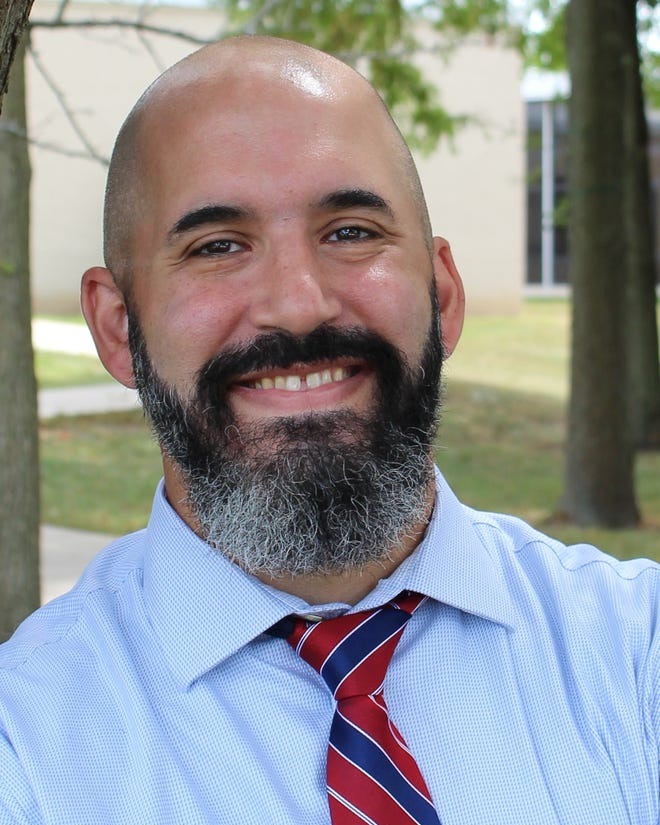 David Purpura is a professor of Human Development and Family Science at Purdue University and the Director of the Center for Early Learning which is an interdisciplinary research, practice, and policy center. His research is broadly focused on early mathematics learning from preschool through elementary school and contextual and cognitive factors that affect successful development. Much of his ongoing grant funded work from federal, state, and foundation agencies focuses on designing and evaluating instructional tools that meet the needs of individual children and families and neatly fit into existing school and home activities. He work also incorporates an emphasis on broader school readiness skills, preschool evaluation, school readiness, dual language learners, language and literacy, and the home learning environment.
David Purpura is a professor of Human Development and Family Science at Purdue University and the Director of the Center for Early Learning which is an interdisciplinary research, practice, and policy center. His research is broadly focused on early mathematics learning from preschool through elementary school and contextual and cognitive factors that affect successful development. Much of his ongoing grant funded work from federal, state, and foundation agencies focuses on designing and evaluating instructional tools that meet the needs of individual children and families and neatly fit into existing school and home activities. He work also incorporates an emphasis on broader school readiness skills, preschool evaluation, school readiness, dual language learners, language and literacy, and the home learning environment.
Key Research Interests:
Education, Schooling, Language, Communication, Out-of-School Time, Prevention and Interventions, School Readiness, Childcare, Technology, Media and Child Development
Ximena Franco-Jenkins
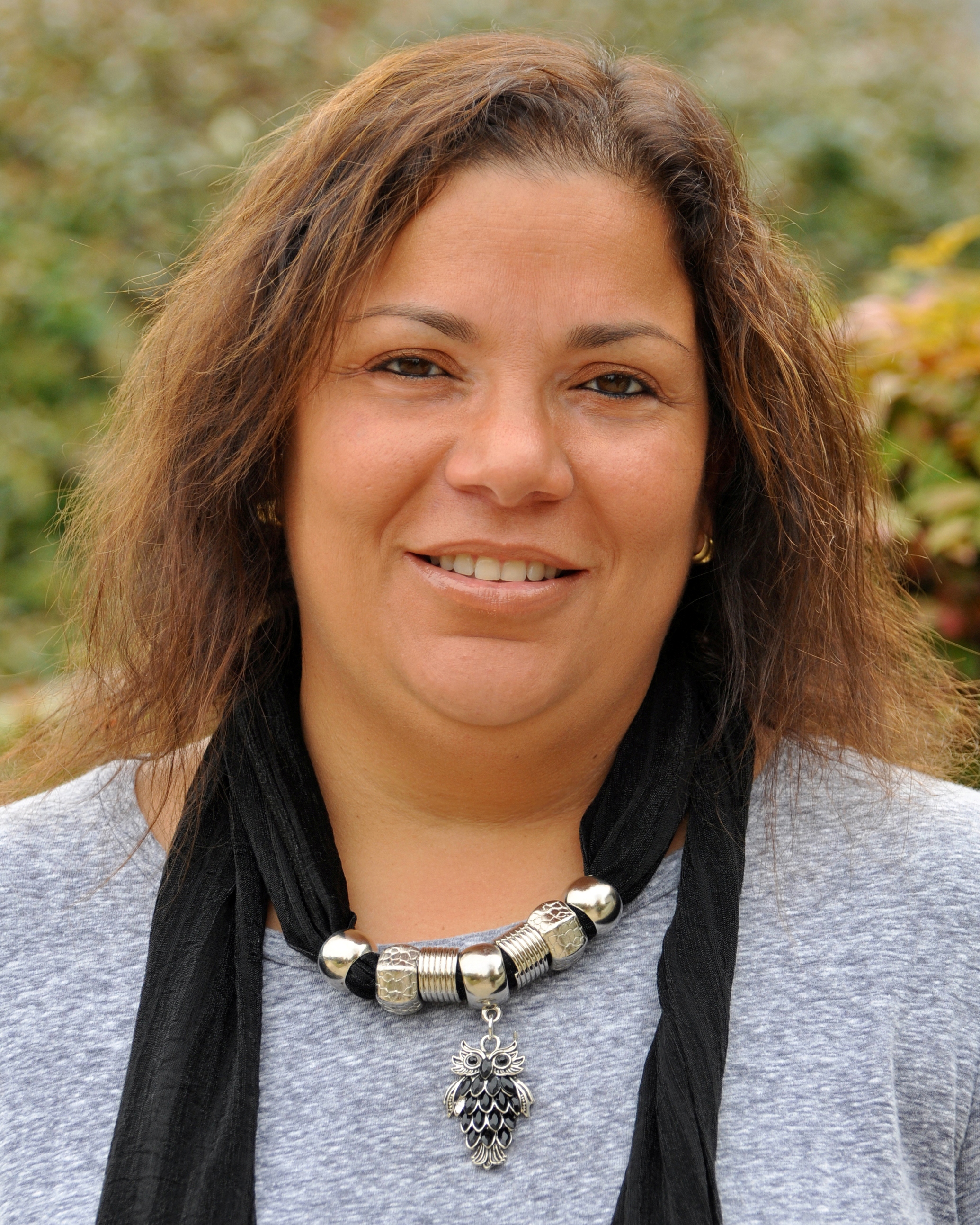 Ximena Franco-Jenkins, Ph.D., is a Senior Research Scientist at the Frank Porter Graham Child Development Institute, the Co-Director of the National Implementation Research Network (NIRN), and the Early Childhood Portfolio Lead at NIRN. She has more than 17 years of experience in applied research, primarily with ethnically diverse children and families, Dual Language Learners (DLLs), and Multilingual Learners (MLs) within school and community settings. Her work integrates children's socio-emotional development and educational and family environments. She aims to develop culturally robust assessments and support the implementation of evidence-based practices. Franco-Jenkins currently co-leads an IES-funded study examining associations between the language of instruction and academic outcomes in Spanish-English dual-language academic settings. Her work also involves policies and practices related to state quality rating and improvement systems for early childhood. Franco-Jenkins currently serves on the Finance and Audit Committee of the Society for Research in Child Development (SRCD).
Ximena Franco-Jenkins, Ph.D., is a Senior Research Scientist at the Frank Porter Graham Child Development Institute, the Co-Director of the National Implementation Research Network (NIRN), and the Early Childhood Portfolio Lead at NIRN. She has more than 17 years of experience in applied research, primarily with ethnically diverse children and families, Dual Language Learners (DLLs), and Multilingual Learners (MLs) within school and community settings. Her work integrates children's socio-emotional development and educational and family environments. She aims to develop culturally robust assessments and support the implementation of evidence-based practices. Franco-Jenkins currently co-leads an IES-funded study examining associations between the language of instruction and academic outcomes in Spanish-English dual-language academic settings. Her work also involves policies and practices related to state quality rating and improvement systems for early childhood. Franco-Jenkins currently serves on the Finance and Audit Committee of the Society for Research in Child Development (SRCD).
Key Research Interests:
Diversity, Equity, and Social Justice, Education, Schooling, Language, Communication, Race, Ethnicity, Culture, Context, School Readiness, Childcare
Kathleen Corriveau (Sold Out)
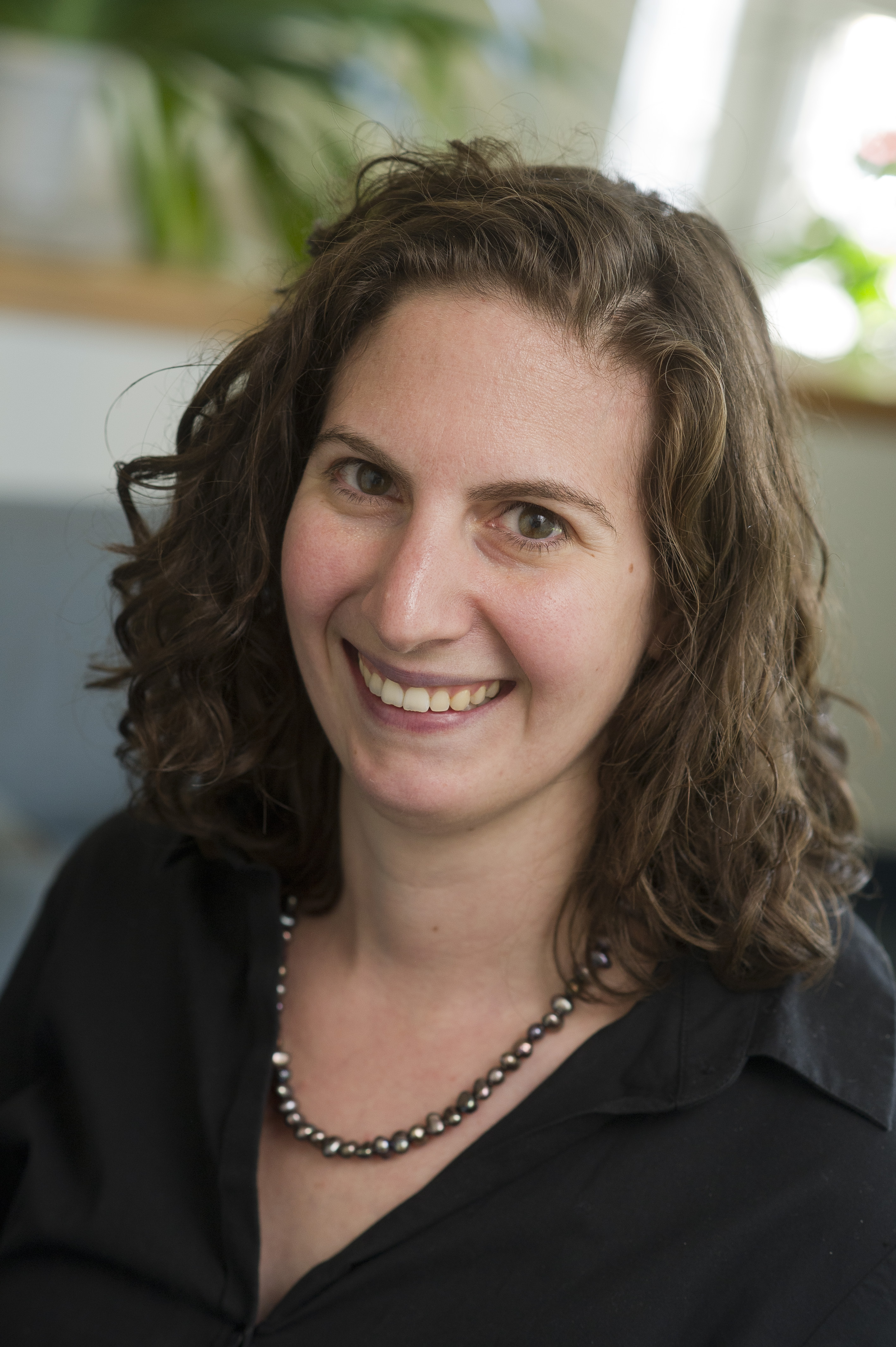 Dr. Kathleen Corriveau is a professor at Boston University and the director of the Social Learning Laboratory. Her research focuses on social-cognitive development of trust in early childhood, bridging ideas from developmental and social psychology and applying them to educational settings. Dedicated to enhancing school readiness for all children, Dr. Corriveau is a former NaED/Spencer Postdoctoral Fellow, and currently holds a $10 million grant from the Templeton Foundation to form the Developing Belief Network, an international network of researchers interested in the cross-cultural development of religious cognition. She is the coeditor of The Questioning Child: Insights from Psychology and Education. She has received numerous awards, including Fellow from the Association for Psychological Science and American Psychological Association. Her work has been funded by the National Science Foundation (including an NSF CAREER award), the Templeton Foundation, the Spencer Foundation, the Association for Psychological Science, and the American Psychological Association.
Dr. Kathleen Corriveau is a professor at Boston University and the director of the Social Learning Laboratory. Her research focuses on social-cognitive development of trust in early childhood, bridging ideas from developmental and social psychology and applying them to educational settings. Dedicated to enhancing school readiness for all children, Dr. Corriveau is a former NaED/Spencer Postdoctoral Fellow, and currently holds a $10 million grant from the Templeton Foundation to form the Developing Belief Network, an international network of researchers interested in the cross-cultural development of religious cognition. She is the coeditor of The Questioning Child: Insights from Psychology and Education. She has received numerous awards, including Fellow from the Association for Psychological Science and American Psychological Association. Her work has been funded by the National Science Foundation (including an NSF CAREER award), the Templeton Foundation, the Spencer Foundation, the Association for Psychological Science, and the American Psychological Association.
Key Research Interests:
Cognitive Processes, Education, Schooling, Family Context and Processes, Positive Youth Development, Social Cognition
Su-hua Wang
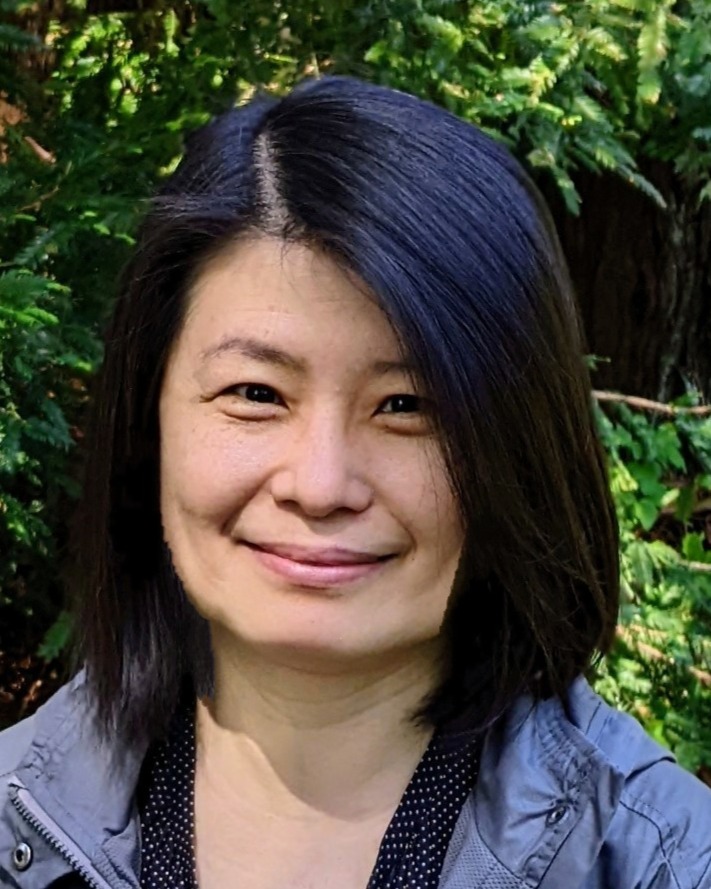 Su-hua Wang was a first-gen student, who moved from Taiwan to the U.S. for graduate study and received her Ph.D. from the University of Illinois at Urbana-Champaign. Her doctoral research involved experimental work on infant cognition and ethnographic work on family storytelling with toddlers. She is a Professor of Psychology and Associate Dean for Research and Graduate Studies at the University of California, Santa Cruz. Her current research examines how early learning is shaped, in diverse ways, by children’s participation in cultural practices and their interaction with caregivers and cultural materials such as toys, books, and technology. She is the co-founder and director of UCSC’s New Gen Learning, an interdisciplinary research consortium for studying the strengths that children from racially and/or linguistically marginalized backgrounds bring to learning. Her work has been funded by NIH, NSF, and the Spencer Foundation.
Su-hua Wang was a first-gen student, who moved from Taiwan to the U.S. for graduate study and received her Ph.D. from the University of Illinois at Urbana-Champaign. Her doctoral research involved experimental work on infant cognition and ethnographic work on family storytelling with toddlers. She is a Professor of Psychology and Associate Dean for Research and Graduate Studies at the University of California, Santa Cruz. Her current research examines how early learning is shaped, in diverse ways, by children’s participation in cultural practices and their interaction with caregivers and cultural materials such as toys, books, and technology. She is the co-founder and director of UCSC’s New Gen Learning, an interdisciplinary research consortium for studying the strengths that children from racially and/or linguistically marginalized backgrounds bring to learning. Her work has been funded by NIH, NSF, and the Spencer Foundation.
Key Research Interests:
Attention, Learning, Memory, Cognitive Processes, Language, Communication, Perceptual, Sensory, Motor, Race, Ethnicity, Culture, Context, Technology, Media and Child Development
Qing Zhou (Sold Out)
 Dr. Qing Zhou is a Professor of Psychology and the Director of Culture and Family Study Lab at University of California Berkeley. Her research focuses on cultural, family, and temperament influences on children's executive function, socio-emotional, and academic development from preschool to young adulthood. Her team has conducted longitudinal studies of parenting and socioemotional development of Chinese children in Asia and Chinese American and Mexican American children in the U.S. She was a recipient of the Foundation for Child Development Young Scholars Award, and her research has been funded by the National Institute of Health (USA). Dr. Zhou currently serves as an associate editor of Developmental Psychology and a consulting editor of Child Development, Cultural Diversity and Ethnic Minority Psychology, and British Journal of Developmental Psychology. She is currently the Co-Chair of Society for Research in Child Development (SRCD) Publication Committee and the Chair-Elect of SRCD Asian Caucus.
Dr. Qing Zhou is a Professor of Psychology and the Director of Culture and Family Study Lab at University of California Berkeley. Her research focuses on cultural, family, and temperament influences on children's executive function, socio-emotional, and academic development from preschool to young adulthood. Her team has conducted longitudinal studies of parenting and socioemotional development of Chinese children in Asia and Chinese American and Mexican American children in the U.S. She was a recipient of the Foundation for Child Development Young Scholars Award, and her research has been funded by the National Institute of Health (USA). Dr. Zhou currently serves as an associate editor of Developmental Psychology and a consulting editor of Child Development, Cultural Diversity and Ethnic Minority Psychology, and British Journal of Developmental Psychology. She is currently the Co-Chair of Society for Research in Child Development (SRCD) Publication Committee and the Chair-Elect of SRCD Asian Caucus.
Key Research Interests:
Family Context and Processes, Parenting and Parent-Child Relationships, Race, Ethnicity, Culture, Context, Social, Emotional, Personality
Kathy Shum
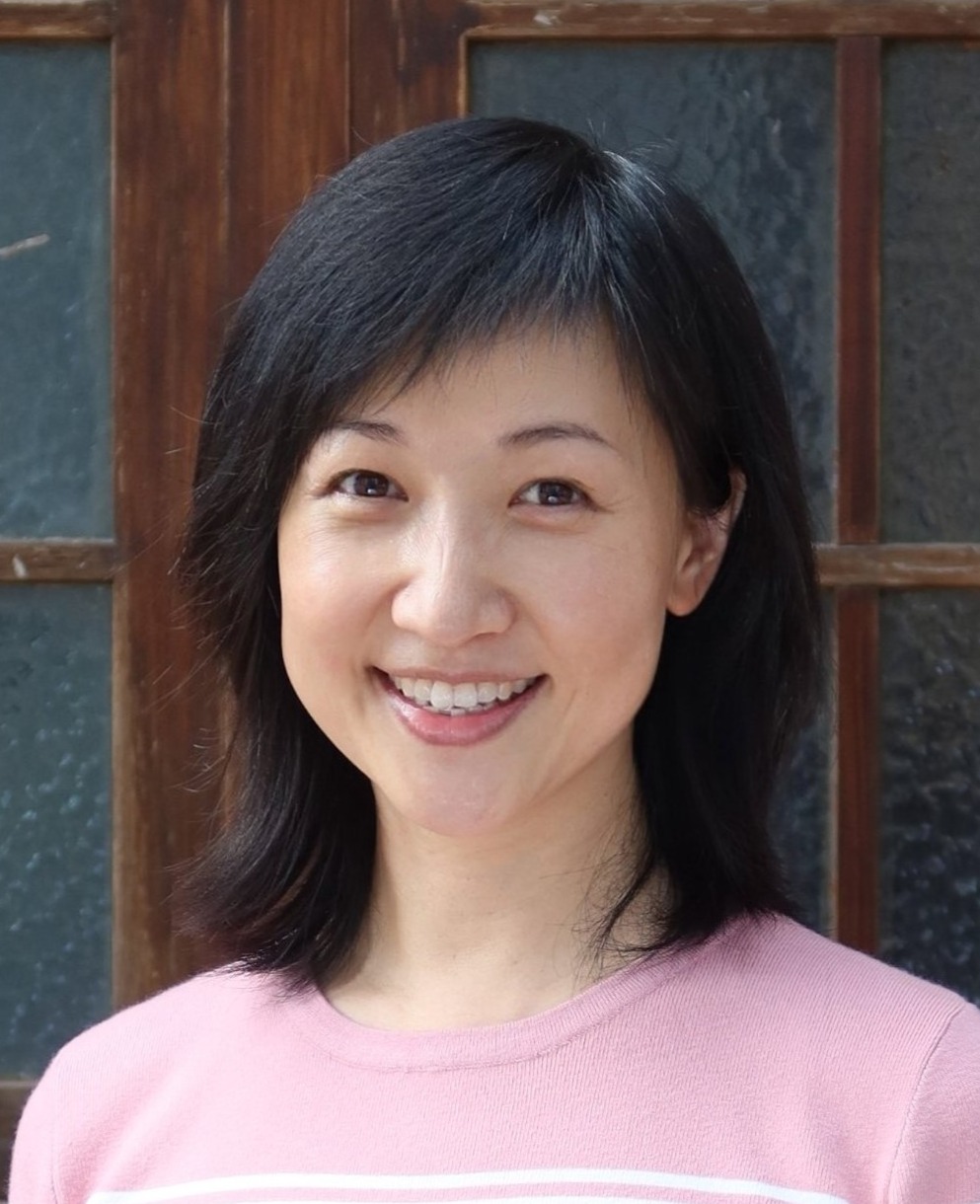 Dr. Shum earned her B.Sc. in Human Biology, an MSc in Physiology from the University of Toronto, and a Ph.D. in Educational Psychology from the University of Hong Kong. She is currently an Associate Professor in the Department of Psychology at the University of Hong Kong, where she also serves as the Director of the Master of Social Sciences Program in Educational Psychology. Inspired by her personal and professional experience working with children and families, her research is dedicated to the study of language and socioemotional development, with a specific focus on children with autism and ADHD. Her research program also examines parenting and parent-child interaction as key factors in children’s socioemotional development. Dr. Shum has recently been awarded the HKU Rosie Young 90 Medal for Outstanding Young Woman Scholar in recognition of her outstanding research and scholarship, and distinguished contributions to the University and the community.
Dr. Shum earned her B.Sc. in Human Biology, an MSc in Physiology from the University of Toronto, and a Ph.D. in Educational Psychology from the University of Hong Kong. She is currently an Associate Professor in the Department of Psychology at the University of Hong Kong, where she also serves as the Director of the Master of Social Sciences Program in Educational Psychology. Inspired by her personal and professional experience working with children and families, her research is dedicated to the study of language and socioemotional development, with a specific focus on children with autism and ADHD. Her research program also examines parenting and parent-child interaction as key factors in children’s socioemotional development. Dr. Shum has recently been awarded the HKU Rosie Young 90 Medal for Outstanding Young Woman Scholar in recognition of her outstanding research and scholarship, and distinguished contributions to the University and the community.
Key Research Interests:
Attention, Learning, Memory, Developmental Disabilities, Parenting and Parent-Child Relationships, Prevention and Interventions
Nirmala Rao (Sold Out)
 Nirmala Rao is Serena H C Yang Professor in Early Childhood Development and Education and Chair Professor of Child Development and Education, Faculty of Education, The University of Hong Kong (HKU). Her research has focused on the development of psychometrically robust and culturally sensitive measures of early childhood development and the quality of Early Childhood Education, early educational policy, evaluation of early childhood programs, and culture, policy and pedagogy in the early years. Professor Rao has published widely and is on the editorial board of premier scholarly journals. She has served as an Associate Editor of Child Development (2013-2021) and been a co-chair of panels at SRCD biennial meetings. She has participated in high-level international meetings and regularly provides expertise and consultancy for the UN and its associated agencies. She has received awards for both research and teaching. Furthermore, she has also had significant administrative leadership roles at HKU.
Nirmala Rao is Serena H C Yang Professor in Early Childhood Development and Education and Chair Professor of Child Development and Education, Faculty of Education, The University of Hong Kong (HKU). Her research has focused on the development of psychometrically robust and culturally sensitive measures of early childhood development and the quality of Early Childhood Education, early educational policy, evaluation of early childhood programs, and culture, policy and pedagogy in the early years. Professor Rao has published widely and is on the editorial board of premier scholarly journals. She has served as an Associate Editor of Child Development (2013-2021) and been a co-chair of panels at SRCD biennial meetings. She has participated in high-level international meetings and regularly provides expertise and consultancy for the UN and its associated agencies. She has received awards for both research and teaching. Furthermore, she has also had significant administrative leadership roles at HKU.
Key Research Interests:
Education, Schooling, Family Context and Processes, School Readiness, Childcare, Social Policy
Margaret Caughy (Almost Sold Out)
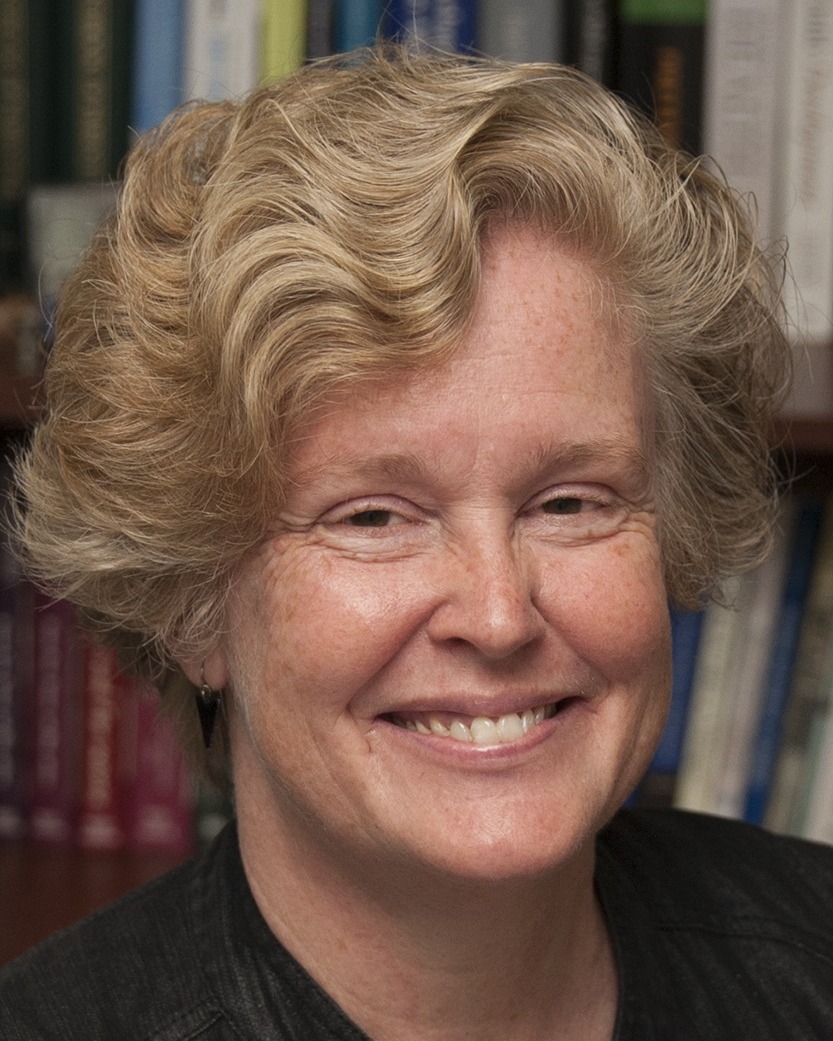 Margaret O’Brien Caughy, Sc.D. is the Georgia Athletic Association Professor in Family Health Disparities in the Department of Human Development and Family Science at the University of Georgia. Dr. Caughy’s research is focused on how familial processes such as supportive parenting and ethnic-racial socialization support healthy development among Black and Latinx children experiencing economic instability, racism and discrimination, and sociopolitical stress. She is particularly interested in how culture shapes parents' socialization practices. She is Principal Investigator of the Dallas Project on Education Pathways (DPREP) funded by NICHD following a sample of over 400 Black and Latinx children from 2.5 years to 7th grade. Dr. Caughy received a Bachelor of Science degree in Psychology from Texas A&M University, a Masters of Education degree in Human Development from the University of Maryland, and a Doctor of Science degree in Maternal and Child Health from the Johns Hopkins School of Public Health.
Margaret O’Brien Caughy, Sc.D. is the Georgia Athletic Association Professor in Family Health Disparities in the Department of Human Development and Family Science at the University of Georgia. Dr. Caughy’s research is focused on how familial processes such as supportive parenting and ethnic-racial socialization support healthy development among Black and Latinx children experiencing economic instability, racism and discrimination, and sociopolitical stress. She is particularly interested in how culture shapes parents' socialization practices. She is Principal Investigator of the Dallas Project on Education Pathways (DPREP) funded by NICHD following a sample of over 400 Black and Latinx children from 2.5 years to 7th grade. Dr. Caughy received a Bachelor of Science degree in Psychology from Texas A&M University, a Masters of Education degree in Human Development from the University of Maryland, and a Doctor of Science degree in Maternal and Child Health from the Johns Hopkins School of Public Health.
Key Research Interests:
Cognitive Processes, Diversity, Equity, and Social Justice, Education, Schooling, Family Context and Processes, Parenting and Parent-Child Relationships, Positive Youth Development, Race, Ethnicity, Culture, Context, School Readiness, Childcare
Qi Wang (Sold Out)
 Qi Wang is Professor of Human Development at Cornell University. She holds a Ph.D. in Psychology from Harvard University. Her research examines the mechanisms underlying the development of a variety of social-cognitive skills in the context of culture, focusing particularly on autobiographical memory. Wang has also pioneered research to examine the impact of the Internet and social media as a cultural force on memory, self, and psychosocial functioning. Her research is supported by grants from the National Science Foundation, National Institutes of Health, US Department of Agriculture, and National Natural Science Foundation of China. Wang frequently publishes in scientific journals and in volumes of collected works. Her single-authored book "The autobiographical self in time and culture" (Oxford University Press, 2013) is regarded as the definitive work on culture and autobiographical memory. Wang is Editor-in-Chief of the Journal of Applied Research in Memory and Cognition, and Chairperson of SRCD Asian Caucus.
Qi Wang is Professor of Human Development at Cornell University. She holds a Ph.D. in Psychology from Harvard University. Her research examines the mechanisms underlying the development of a variety of social-cognitive skills in the context of culture, focusing particularly on autobiographical memory. Wang has also pioneered research to examine the impact of the Internet and social media as a cultural force on memory, self, and psychosocial functioning. Her research is supported by grants from the National Science Foundation, National Institutes of Health, US Department of Agriculture, and National Natural Science Foundation of China. Wang frequently publishes in scientific journals and in volumes of collected works. Her single-authored book "The autobiographical self in time and culture" (Oxford University Press, 2013) is regarded as the definitive work on culture and autobiographical memory. Wang is Editor-in-Chief of the Journal of Applied Research in Memory and Cognition, and Chairperson of SRCD Asian Caucus.
Key Research Interests:
Attention, Learning, Memory, Cognitive Processes, Family Context and Processes, Race, Ethnicity, Culture, Context, Social Cognition, Technology, Media and Child Development
Natasha Cabrera (Sold Out)
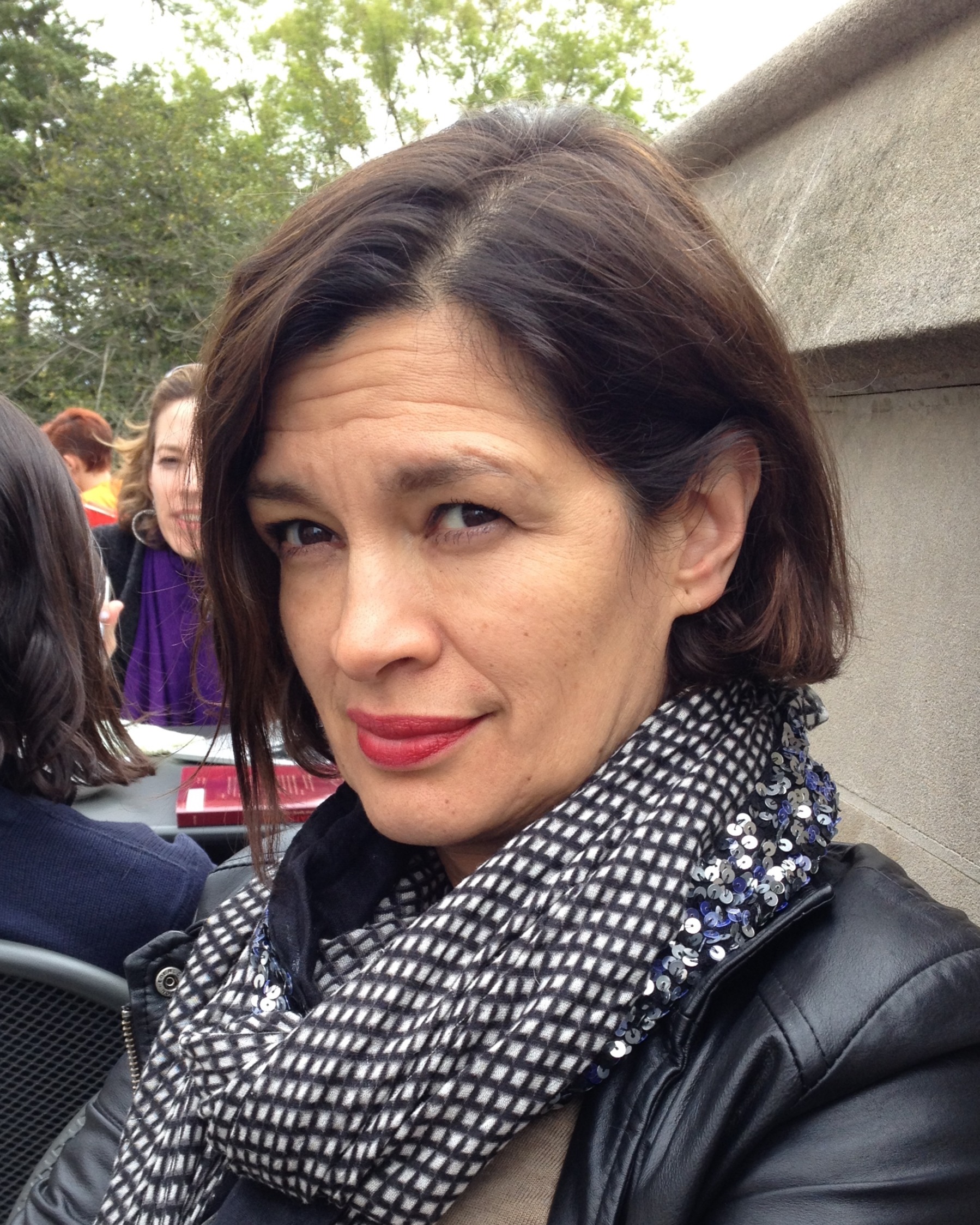 Natasha J. Cabrera, Ph.D., is Professor of Human Development at the University of Maryland. Dr. Cabrera’s research focuses on father involvement and children’s social and cognitive development; adaptive and maladaptive factors related to parenting and cultural variation in ethnic minority families; and, the mechanisms linking early experiences to children’s school readiness. Dr. Cabrera s the co-editor of the Handbook of Father Involvement: Multidisciplinary Perspectives, 2nd Edition and Latina/o Child Psychology/Mental Health. She is the Editor-in-Chief of Monographs of SRCD and received the 2009 NCFR award for Best Research Article regarding men in families. In 2015, the National Academy of Sciences appointed her to its committee on parents of young children; in 2016, she was a Russell Sage Foundation Visiting Scholar; and, in 2017 she was a Deutscher Akademischer Austausch Dienst, visiting scholar, Germany. She is co-PI at the National Center for Research on Hispanic Families and Children.
Natasha J. Cabrera, Ph.D., is Professor of Human Development at the University of Maryland. Dr. Cabrera’s research focuses on father involvement and children’s social and cognitive development; adaptive and maladaptive factors related to parenting and cultural variation in ethnic minority families; and, the mechanisms linking early experiences to children’s school readiness. Dr. Cabrera s the co-editor of the Handbook of Father Involvement: Multidisciplinary Perspectives, 2nd Edition and Latina/o Child Psychology/Mental Health. She is the Editor-in-Chief of Monographs of SRCD and received the 2009 NCFR award for Best Research Article regarding men in families. In 2015, the National Academy of Sciences appointed her to its committee on parents of young children; in 2016, she was a Russell Sage Foundation Visiting Scholar; and, in 2017 she was a Deutscher Akademischer Austausch Dienst, visiting scholar, Germany. She is co-PI at the National Center for Research on Hispanic Families and Children.
Key Research Interests:
Diversity, Equity, and Social Justice, Family Context and Processes, Parenting and Parent-Child Relationships, School Readiness, Childcare
Gabriela Stein (Sold Out)
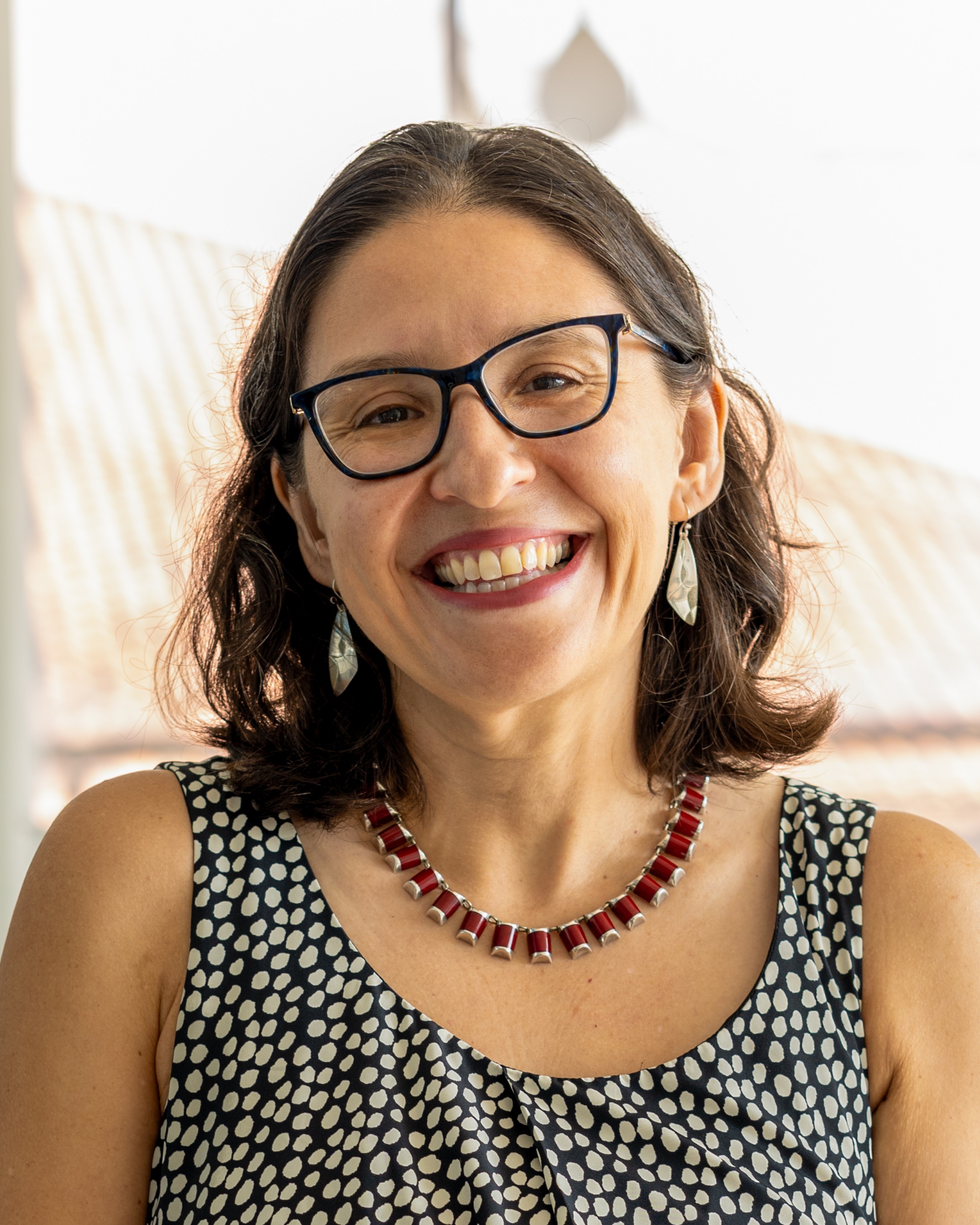 Gabriela Livas Stein is Chair and Professor of the Human Development and Family Sciences at The University of Texas at Austin. Broadly, her research uses developmental psychopathology and cultural-ecological frameworks to investigate the impact of culturally relevant factors on the development of psychopathology for minoritized youth and their families. Her community-engaged work focuses on resilience, familial cultural values, discrimination, racial-ethnic socialization, and coping, as well as prevention and intervention using culturally relevant interventions and increasing mental health care access for underserved populations. She has obtained funding from NIDA, NIMH, PCORI, and WT GRANT. She has served as the Vice President of Programming for the Society of Research on Adolescence, as a co-chair of the Ethnic Racial Issues Committee of the Society of Research on Child Development, and a past chair of the Latinx Caucus of the Society of Research on Child Development.
Gabriela Livas Stein is Chair and Professor of the Human Development and Family Sciences at The University of Texas at Austin. Broadly, her research uses developmental psychopathology and cultural-ecological frameworks to investigate the impact of culturally relevant factors on the development of psychopathology for minoritized youth and their families. Her community-engaged work focuses on resilience, familial cultural values, discrimination, racial-ethnic socialization, and coping, as well as prevention and intervention using culturally relevant interventions and increasing mental health care access for underserved populations. She has obtained funding from NIDA, NIMH, PCORI, and WT GRANT. She has served as the Vice President of Programming for the Society of Research on Adolescence, as a co-chair of the Ethnic Racial Issues Committee of the Society of Research on Child Development, and a past chair of the Latinx Caucus of the Society of Research on Child Development.
Key Research Interests:
Developmental Psychopathology, Diversity, Equity, and Social Justice, Family Context and Processes, Parenting and Parent-Child Relationships, Prevention and Interventions, Race, Ethnicity, Culture, Context
Friday Breakfast: May 2, 2025 - 8:30 am - 10:00 am CT
Eleanor Seaton (Almost Sold Out)
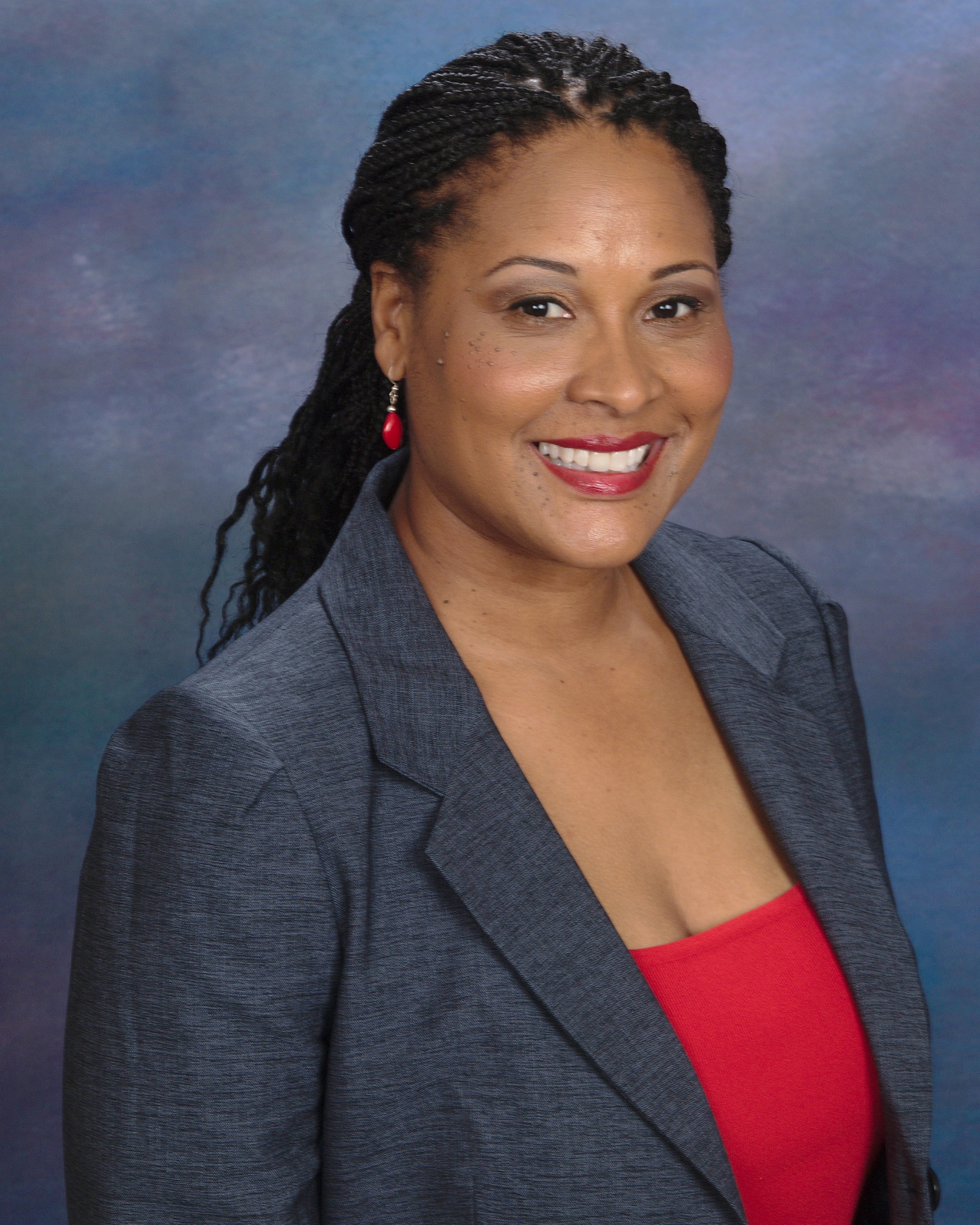 Dr. Eleanor K. Seaton is a Professor in the Psychology department at the University of Illinois at Urbana-Champaign. Dr. Seaton is a developmental psychologist, and an international expert on racism-related experiences, racial identity, and mental health among Black youth. Dr. Seaton’s research documents the impact of racism on Black adolescents’ mental health using prospective cohort studies, ecological momentary assessment techniques, qualitative interviews, and analyses of nationally representative data sets. Dr. Seaton has increasingly focused on early adolescence in order to understand the intersection of pubertal development, race-ethnicity and gender among Black children and adolescents. Dr. Seaton is a former co-host of a television segment, titled Break it Down on AZ PBS where she discussed how racism impacts various facets of society. Dr. Seaton tends to journal, travel, bake desserts, shop for luxury handbags, read, watch movies and dance to Chicago style house music when relaxing.
Dr. Eleanor K. Seaton is a Professor in the Psychology department at the University of Illinois at Urbana-Champaign. Dr. Seaton is a developmental psychologist, and an international expert on racism-related experiences, racial identity, and mental health among Black youth. Dr. Seaton’s research documents the impact of racism on Black adolescents’ mental health using prospective cohort studies, ecological momentary assessment techniques, qualitative interviews, and analyses of nationally representative data sets. Dr. Seaton has increasingly focused on early adolescence in order to understand the intersection of pubertal development, race-ethnicity and gender among Black children and adolescents. Dr. Seaton is a former co-host of a television segment, titled Break it Down on AZ PBS where she discussed how racism impacts various facets of society. Dr. Seaton tends to journal, travel, bake desserts, shop for luxury handbags, read, watch movies and dance to Chicago style house music when relaxing.
Key Research Interests:
Diversity, Equity, and Social Justice, Positive Youth Development, Race, Ethnicity, Culture, Context
Bernadette Sanchez
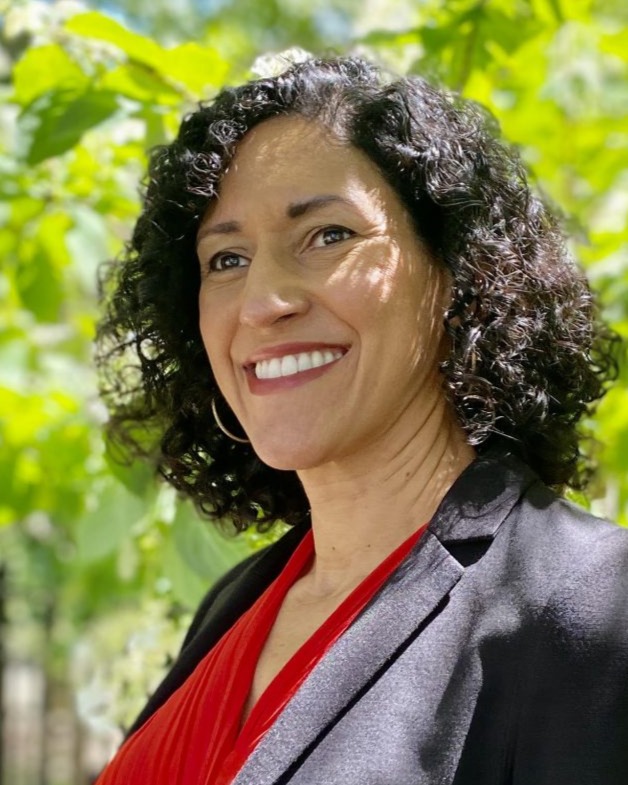 Bernadette Sánchez is a Professor of Human Development & Learning in the Department of Educational Psychology at the University of Illinois Chicago. She is an expert on the roles of race, ethnicity, and mentoring relationships in the positive development of urban adolescents of color from low-income communities. Dr. Sanchez’s work been recognized with awards that include the Distinguished Fellowship from the William T. Grant Foundation in 2017, the Public Voices Fellowship and the Ethnic Minority Mentoring Award from the Society for Community Research and Action. She has received research funding from the National Institutes of Health, the National Science Foundation, William T. Grant Foundation and others. Dr. Sánchez is also a member of the Research Board for the National Mentoring Resource Center. She received her B.A. in Psychology from Fairfield University and her M.A. and Ph.D. in Community and Prevention Research from the University of Illinois Chicago.
Bernadette Sánchez is a Professor of Human Development & Learning in the Department of Educational Psychology at the University of Illinois Chicago. She is an expert on the roles of race, ethnicity, and mentoring relationships in the positive development of urban adolescents of color from low-income communities. Dr. Sanchez’s work been recognized with awards that include the Distinguished Fellowship from the William T. Grant Foundation in 2017, the Public Voices Fellowship and the Ethnic Minority Mentoring Award from the Society for Community Research and Action. She has received research funding from the National Institutes of Health, the National Science Foundation, William T. Grant Foundation and others. Dr. Sánchez is also a member of the Research Board for the National Mentoring Resource Center. She received her B.A. in Psychology from Fairfield University and her M.A. and Ph.D. in Community and Prevention Research from the University of Illinois Chicago.
Key Research Interests:
Diversity, Equity, and Social Justice, Out-of-School Time, Prevention and Interventions, Positive Youth Development, Race, Ethnicity, Culture, Context
Anna Gassman-Pines
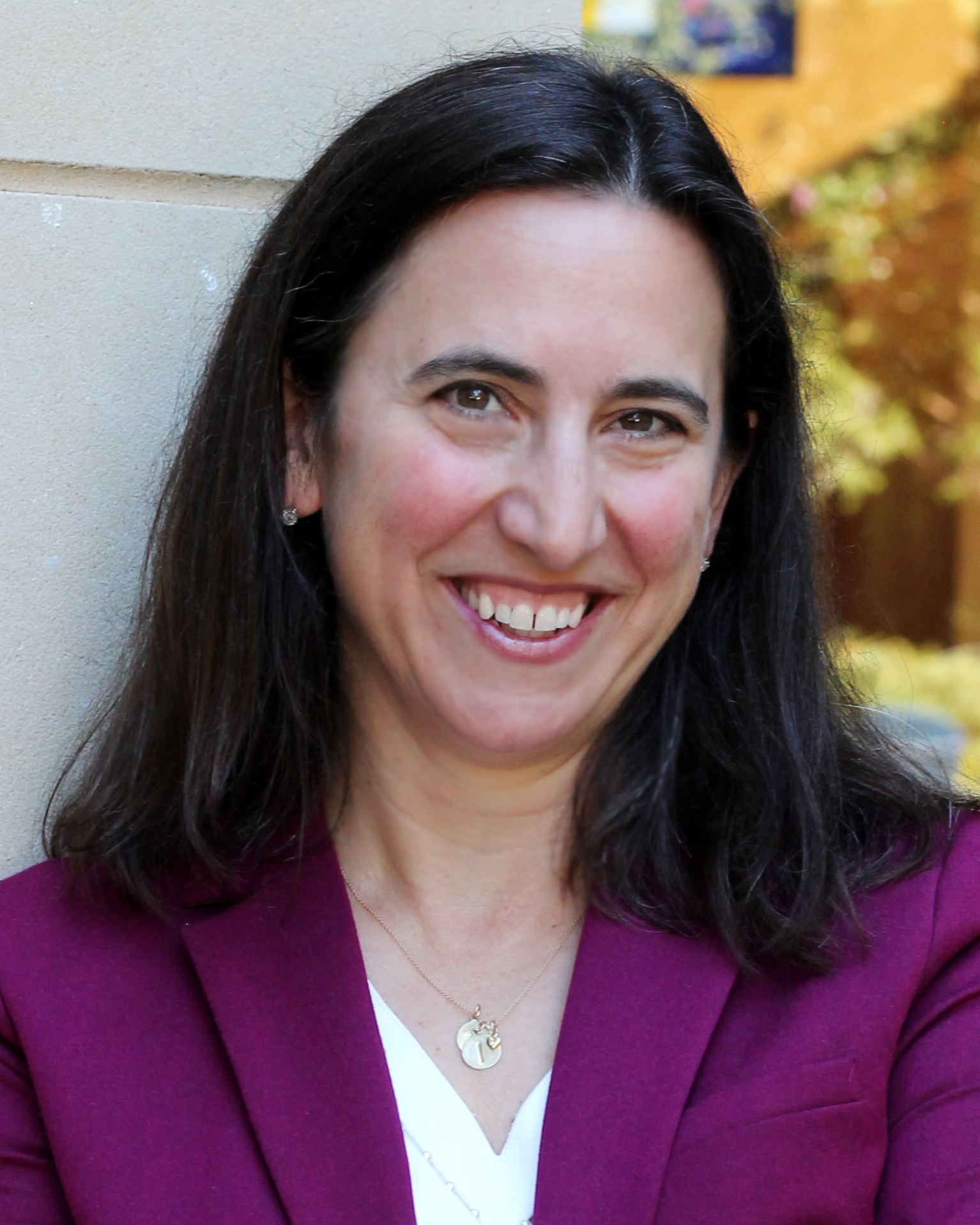 Anna Gassman-Pines is Professor of Public Policy & Psychology and Neuroscience in the Duke Sanford School of Public Policy and a Faculty Affiliate of the Duke Center for Child and Family Policy. Dr. Gassman-Pines received her BA with distinction in psychology from Yale, where she was an Affiliate of the Bush Center for Child Development and Social Policy, and her Ph.D. in Community and Developmental Psychology from New York University. Her research focuses on the development of low-income children in the United States and, in particular, how parents’ experiences outside the home – in low-wage workplaces, labor markets, accessing social services – spillover to the home and affect family functioning and child well-being. Dr. Gassman-Pines was formerly the co-chair of the SRCD Science and Policy Committee. Her research has been funded by the National Science Foundation, the Eunice Kennedy Shriver National Institute of Child Health and Human Development, and many foundations.
Anna Gassman-Pines is Professor of Public Policy & Psychology and Neuroscience in the Duke Sanford School of Public Policy and a Faculty Affiliate of the Duke Center for Child and Family Policy. Dr. Gassman-Pines received her BA with distinction in psychology from Yale, where she was an Affiliate of the Bush Center for Child Development and Social Policy, and her Ph.D. in Community and Developmental Psychology from New York University. Her research focuses on the development of low-income children in the United States and, in particular, how parents’ experiences outside the home – in low-wage workplaces, labor markets, accessing social services – spillover to the home and affect family functioning and child well-being. Dr. Gassman-Pines was formerly the co-chair of the SRCD Science and Policy Committee. Her research has been funded by the National Science Foundation, the Eunice Kennedy Shriver National Institute of Child Health and Human Development, and many foundations.
Key Research Interests:
Family Context and Processes, Parenting and Parent-Child Relationships, Race, Ethnicity, Culture, Context, Social Policy
Jessica Fish
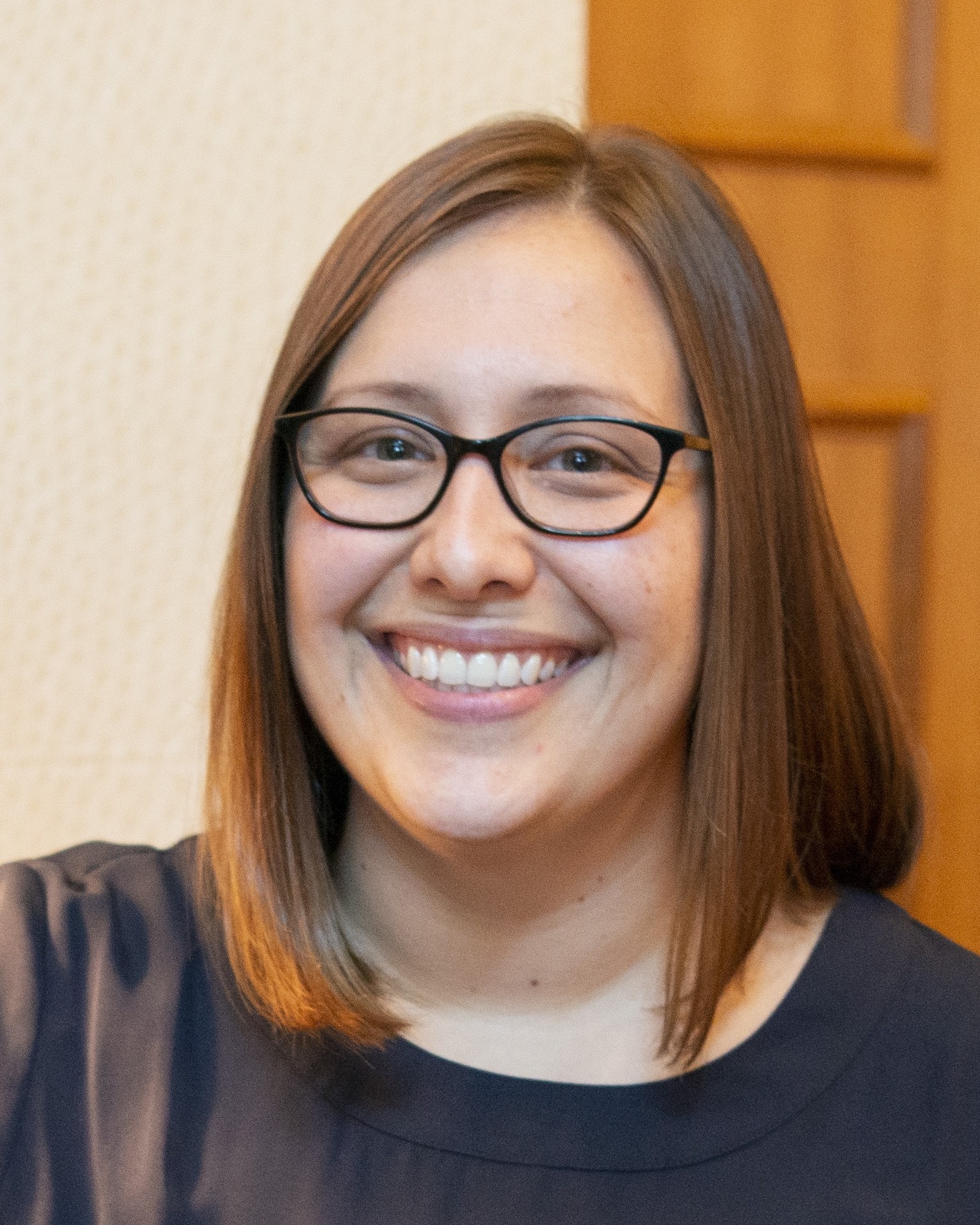 Dr. Jessica Fish is a human development and family science scholar whose research focuses on the health and well-being of sexual and gender minority (i.e., lesbian/gay, bisexual, and transgender) youth and their families. Broadly, Dr. Fish studies the social and interpersonal factors that shape the development and health of sexual and gender minority young people. Her overarching goal is to identify modifiable factors that contribute to sexual and gender minority health inequities in order to inform developmentally sensitive policies, programs, and prevention strategies that promote the health of sexual and gender minority people across the life course.
Dr. Jessica Fish is a human development and family science scholar whose research focuses on the health and well-being of sexual and gender minority (i.e., lesbian/gay, bisexual, and transgender) youth and their families. Broadly, Dr. Fish studies the social and interpersonal factors that shape the development and health of sexual and gender minority young people. Her overarching goal is to identify modifiable factors that contribute to sexual and gender minority health inequities in order to inform developmentally sensitive policies, programs, and prevention strategies that promote the health of sexual and gender minority people across the life course.
Key Research Interests:
Diversity, Equity, and Social Justice, Family Context and Processes, Positive Youth Development, Social Policy, Other
Ashley Cole
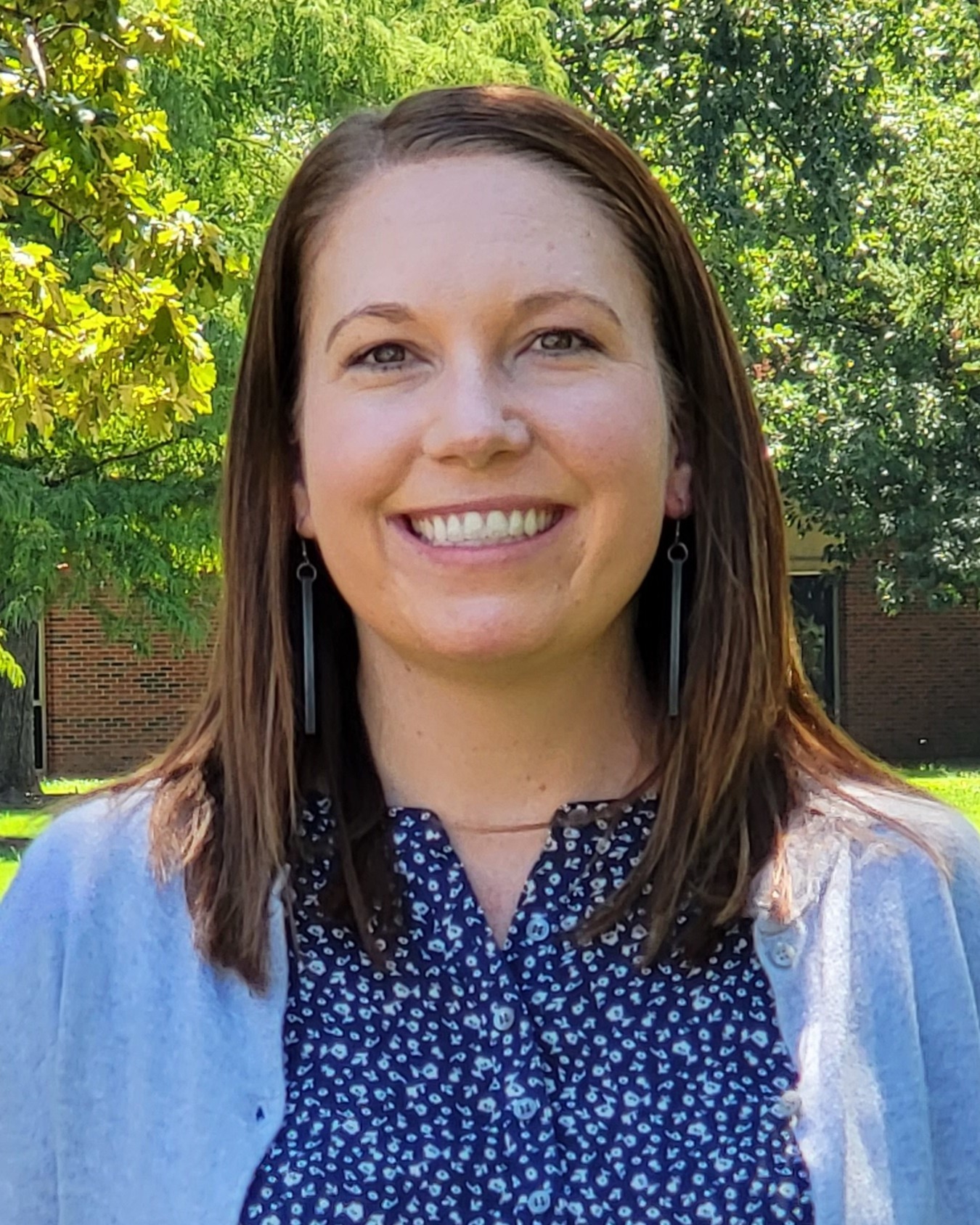 Dr. Ashley B. Cole is an enrolled member of the Citizen Potawatomi Nation of Oklahoma. Her research program focuses on health behaviors and promotion among Indigenous populations to inform the development of culturally relevant clinical interventions that address health inequities in Indigenous communities. Her training as a clinical psychologist has strengthened the applicability of her research in examining both health and mental health comorbidities in underserved communities. She has demonstrated a strong commitment to an academic research career as evidenced by 39 peer-viewed publications (seven as lead-author), four published book chapters (three as lead author), and several additional manuscripts under review and in preparation for publication. She has also widely disseminated her work through over 100 scientific research presentations, including several invited presentations on working with Indigenous communities, at local, national, and international conferences.
Dr. Ashley B. Cole is an enrolled member of the Citizen Potawatomi Nation of Oklahoma. Her research program focuses on health behaviors and promotion among Indigenous populations to inform the development of culturally relevant clinical interventions that address health inequities in Indigenous communities. Her training as a clinical psychologist has strengthened the applicability of her research in examining both health and mental health comorbidities in underserved communities. She has demonstrated a strong commitment to an academic research career as evidenced by 39 peer-viewed publications (seven as lead-author), four published book chapters (three as lead author), and several additional manuscripts under review and in preparation for publication. She has also widely disseminated her work through over 100 scientific research presentations, including several invited presentations on working with Indigenous communities, at local, national, and international conferences.
Key Research Interests:
Diversity, Equity, and Social Justice, Race, Ethnicity, Culture, Context
Jennifer Zosh (Sold Out)
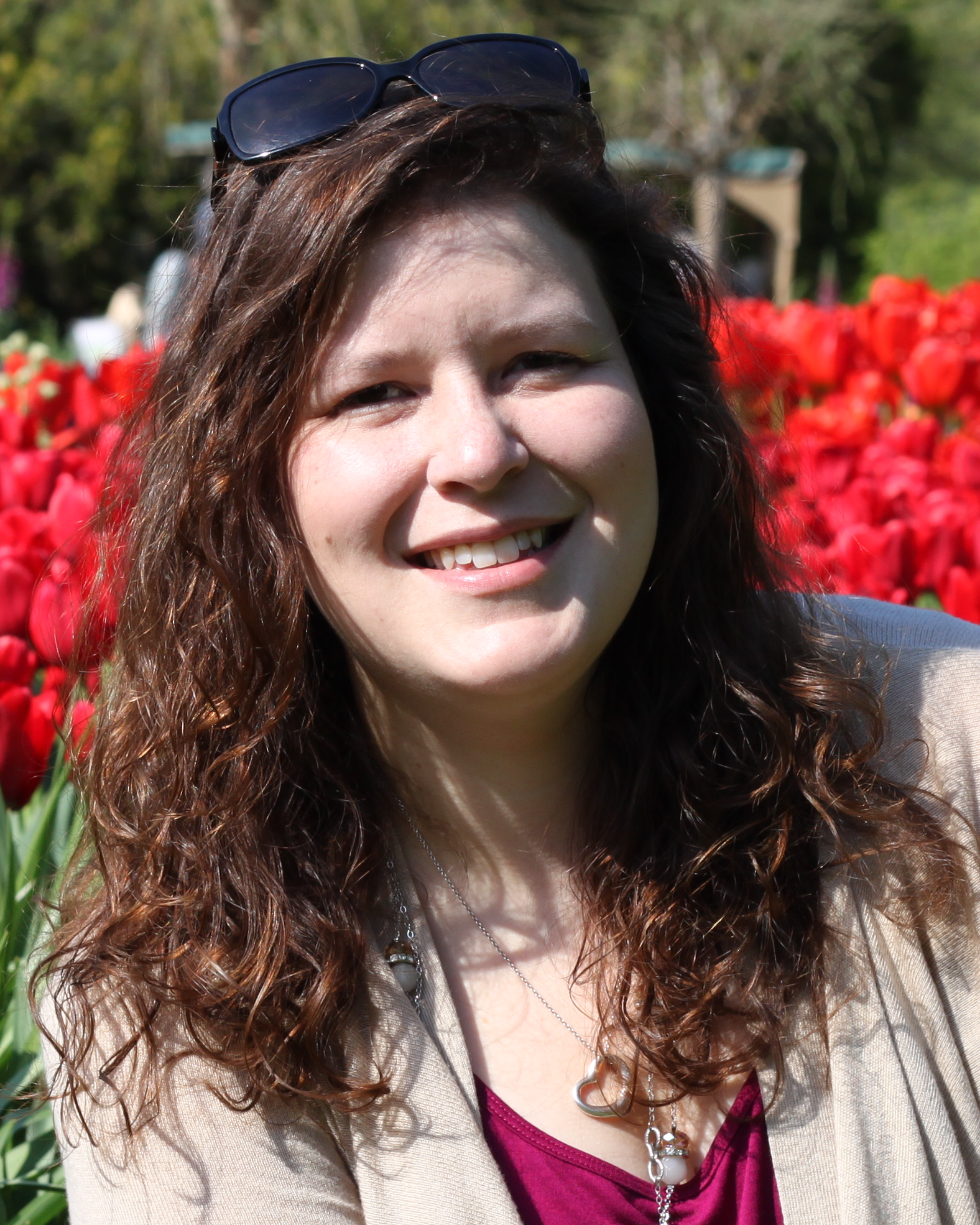 Jennifer M. Zosh, Ph.D., is a Professor of Human Development and Family Studies at Penn State University’s Brandywine campus. Her areas of expertise include playful learning, the impact of technology on children and families, and cognitive development. She publishes in traditional outlets and also with organizations that publish for the public (e.g., Lego Foundation, Brookings Institution, etc.,). A major driving force in her career is dissemination and translation of scientific discoveries via blogging, consulting, and participating in advisory boards. Her translational work has appeared in The Conversation, PBS Parents, the Joan Ganz Cooney Center, NPR Radio Times, and beyond. She is past Chair of the SRCD Teaching Committee and has won both campus and University-wide Teaching Awards. She works hard to balance teaching and research at a teaching intensive, undergraduate-only institution and would be happy to chat about this somewhat non-traditional path.
Jennifer M. Zosh, Ph.D., is a Professor of Human Development and Family Studies at Penn State University’s Brandywine campus. Her areas of expertise include playful learning, the impact of technology on children and families, and cognitive development. She publishes in traditional outlets and also with organizations that publish for the public (e.g., Lego Foundation, Brookings Institution, etc.,). A major driving force in her career is dissemination and translation of scientific discoveries via blogging, consulting, and participating in advisory boards. Her translational work has appeared in The Conversation, PBS Parents, the Joan Ganz Cooney Center, NPR Radio Times, and beyond. She is past Chair of the SRCD Teaching Committee and has won both campus and University-wide Teaching Awards. She works hard to balance teaching and research at a teaching intensive, undergraduate-only institution and would be happy to chat about this somewhat non-traditional path.
Key Research Interests:
Cognitive Processes, Education, Schooling, Technology, Media and Child Development
Melinda Gonzales-Backen
 Dr. Gonzales-Backen is an Associate Professor and Associate Chair of Diversity, Equity, and Inclusion in the Department of Psychological and Brain Sciences at the University of Massachusetts, Amherst. Prior to joining the faculty at UMass, she was faculty in the Department of Human Development and Family Science at Florida State University for 12 years. She earned her Ph.D. and M.S. in Family and Human Development from Arizona State University and her B.A. in Psychology from the University of Arizona. Her research is centered on the collective roles of cultural, contextual, and familial processes in the well-being of Latinx adolescents and emerging adults. Specifically, she is interested in how adolescents learn about and engage in their ethnic-racial and cultural background and the role of family in that process.
Dr. Gonzales-Backen is an Associate Professor and Associate Chair of Diversity, Equity, and Inclusion in the Department of Psychological and Brain Sciences at the University of Massachusetts, Amherst. Prior to joining the faculty at UMass, she was faculty in the Department of Human Development and Family Science at Florida State University for 12 years. She earned her Ph.D. and M.S. in Family and Human Development from Arizona State University and her B.A. in Psychology from the University of Arizona. Her research is centered on the collective roles of cultural, contextual, and familial processes in the well-being of Latinx adolescents and emerging adults. Specifically, she is interested in how adolescents learn about and engage in their ethnic-racial and cultural background and the role of family in that process.
Key Research Interests:
Diversity, Equity, and Social Justice, Family Context and Processes, Race, Ethnicity, Culture, Context
Gail Ferguson (Almost Sold Out)
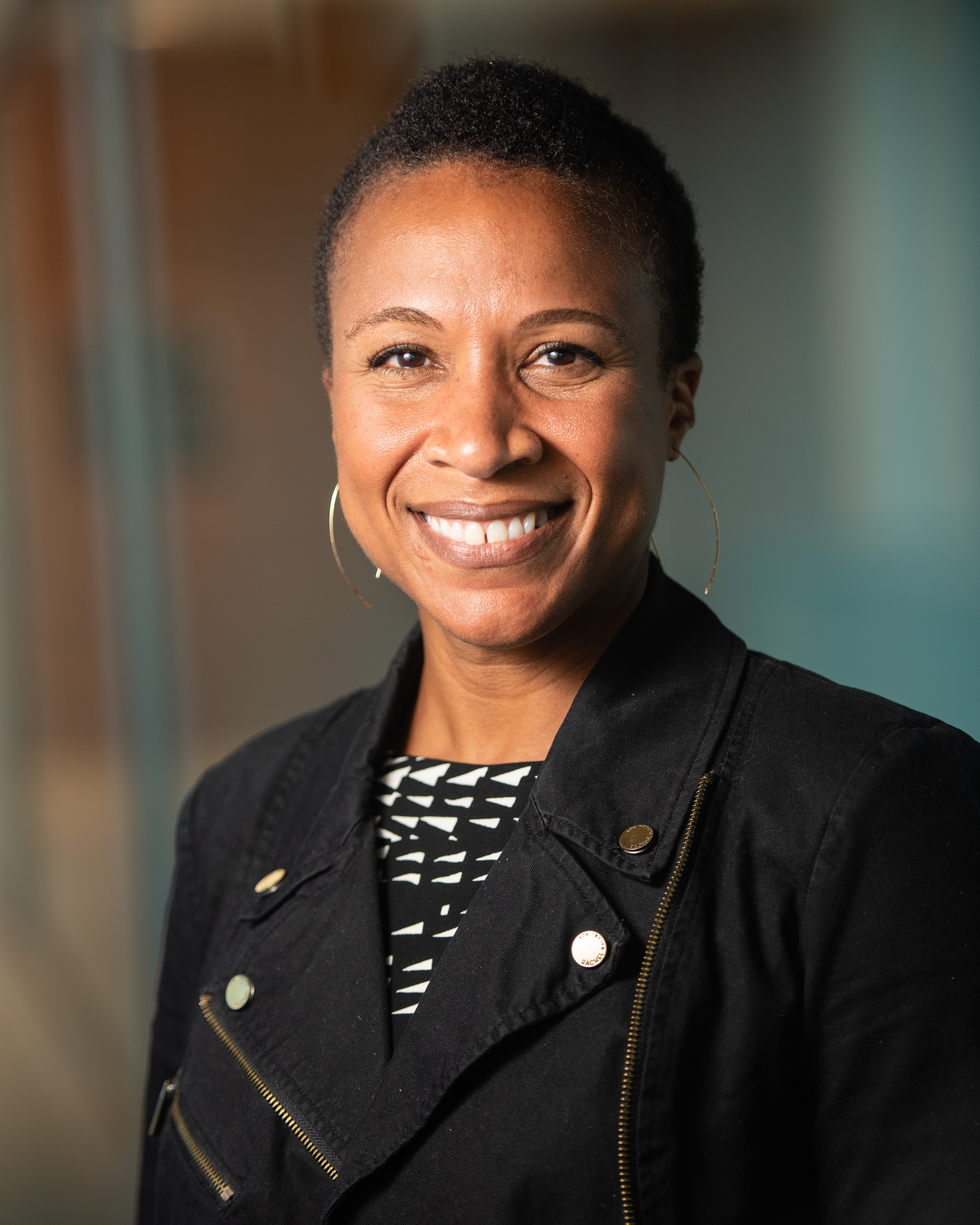 Gail Ferguson, Ph.D. is a Professor in the Institute of Child Development at the University of Minnesota. A Jamaican-born scholar, Dr. Ferguson’s research integrates developmental, cross-cultural, and clinical psychology to study 21st century forms of acculturation and enculturation among youth and families from varying racial, cultural, and national backgrounds. She pioneered work on media-driven remote acculturation and remote enculturation, migration-driven tridimensional acculturation, and the Whiteness pandemic. Taking science from the lab to the living room and classroom, Dr. Ferguson’s transdisciplinary team translates their findings into culturally-responsive health and parenting preventive interventions to promote the resilience of youth in globalizing settings (e.g., JUS Media?) while equipping parents to meet modern parenting demands (e.g., CARPE DIEM). An APA Div 7 Fellow (developmental), Dr. Ferguson serves on the Editorial Boards of Child Development, Child Development Perspectives, and Caribbean Journal of Psychology, and sits on the Board of Directors of the Society for Research on Adolescence.
Gail Ferguson, Ph.D. is a Professor in the Institute of Child Development at the University of Minnesota. A Jamaican-born scholar, Dr. Ferguson’s research integrates developmental, cross-cultural, and clinical psychology to study 21st century forms of acculturation and enculturation among youth and families from varying racial, cultural, and national backgrounds. She pioneered work on media-driven remote acculturation and remote enculturation, migration-driven tridimensional acculturation, and the Whiteness pandemic. Taking science from the lab to the living room and classroom, Dr. Ferguson’s transdisciplinary team translates their findings into culturally-responsive health and parenting preventive interventions to promote the resilience of youth in globalizing settings (e.g., JUS Media?) while equipping parents to meet modern parenting demands (e.g., CARPE DIEM). An APA Div 7 Fellow (developmental), Dr. Ferguson serves on the Editorial Boards of Child Development, Child Development Perspectives, and Caribbean Journal of Psychology, and sits on the Board of Directors of the Society for Research on Adolescence.
Key Research Interests:
Diversity, Equity, and Social Justice, Family Context and Processes, Health, Growth, Injury, Parenting and Parent-Child Relationships, Prevention and Interventions, Race, Ethnicity, Culture, Context, Technology, Media and Child Development
Friday Lunch: May 2, 2025 - 12:10 pm - 1:40 pm CT
Richard Lee
 Richard Lee is a Distinguished McKnight University Professor in the Department of Psychology at the University of Minnesota, Twin Cities. He received his Ph.D. in Psychology (Counseling) from Virginia Commonwealth University. Dr. Lee's research focuses broadly on the cultural, racial, ethnic, and migration experiences of youth and families from racially minoritized backgrounds. He is interested in how Asian American youth and families individually and collectively experience and respond to living in a racialized environment, focusing on determinants and outcomes of ethnic-racial identity development, acculturation and acculturative stress, racism and discrimination, ethnic-racial socialization, and culture-specific parenting across generations. To do this work, he employ top-down and bottom-up approaches to quantitative and qualitative research. He is increasingly drawn toward a more interdisciplinary, international, and collaborative approach to doing this work.
Richard Lee is a Distinguished McKnight University Professor in the Department of Psychology at the University of Minnesota, Twin Cities. He received his Ph.D. in Psychology (Counseling) from Virginia Commonwealth University. Dr. Lee's research focuses broadly on the cultural, racial, ethnic, and migration experiences of youth and families from racially minoritized backgrounds. He is interested in how Asian American youth and families individually and collectively experience and respond to living in a racialized environment, focusing on determinants and outcomes of ethnic-racial identity development, acculturation and acculturative stress, racism and discrimination, ethnic-racial socialization, and culture-specific parenting across generations. To do this work, he employ top-down and bottom-up approaches to quantitative and qualitative research. He is increasingly drawn toward a more interdisciplinary, international, and collaborative approach to doing this work.
Key Research Interests:
Race, Ethnicity, Culture, Context
Amanda Rose
 Amanda Rose (Ph.D. University of Illinois, 1999) is a Professor in the Department of Psychological Sciences at the University of Missouri. Dr. Rose’s work focuses on friendships in youth with particular attention to gender and to implications for emotional adjustment. Her work has been funded by NIMH and published in top journals including Developmental Psychology, Child Development, and Psychological Bulletin. This work has been cited over 14,000 times. Dr. Rose was awarded the Early Scientific Achievement Award from the Society for Research in Child Development, the Chancellor’s Award for Outstanding Research and Creative Activity from the University of Missouri, and fellow status in APA and APS. Dr. Rose is a founding member of the Developmental Psychology program at the University of Missouri. Dr. Rose also received the Provost’s Junior Faculty Teaching Award and the William T. Kemper Fellowship for Teaching Excellence.
Amanda Rose (Ph.D. University of Illinois, 1999) is a Professor in the Department of Psychological Sciences at the University of Missouri. Dr. Rose’s work focuses on friendships in youth with particular attention to gender and to implications for emotional adjustment. Her work has been funded by NIMH and published in top journals including Developmental Psychology, Child Development, and Psychological Bulletin. This work has been cited over 14,000 times. Dr. Rose was awarded the Early Scientific Achievement Award from the Society for Research in Child Development, the Chancellor’s Award for Outstanding Research and Creative Activity from the University of Missouri, and fellow status in APA and APS. Dr. Rose is a founding member of the Developmental Psychology program at the University of Missouri. Dr. Rose also received the Provost’s Junior Faculty Teaching Award and the William T. Kemper Fellowship for Teaching Excellence.
Key Research Interests:
Sex, Gender, Social Relationships
Cecilia Cheung (Sold Out)
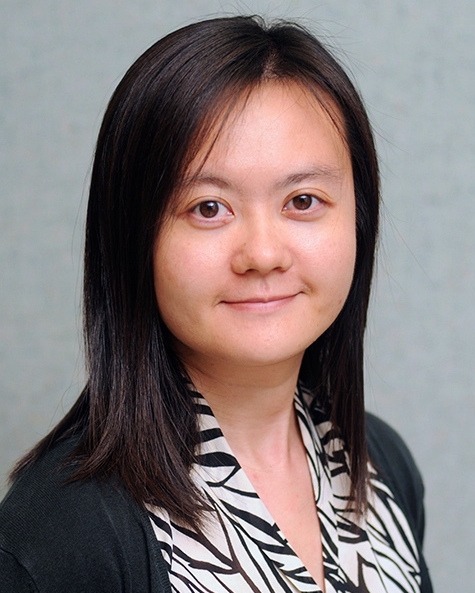 Cecilia Cheung is an Associate Professor in the Psychology Department at the University of California, Riverside. Her research focuses on the role of the social environment (e.g., culture, parents, peers, and teachers) in children's school motivation, achievement, and psychological well-being. Her recent efforts include understanding the role of culture and emotions in creative thinking, testing theories on how children come to understand who is competent and why, and translating knowledge in motivation science into practices in the classroom. Her research has been funded by federal agencies including the National Science Foundation and National Institutes of Health, as well as private foundations. She is a recipient of the Society for Research in Child Development Early Career Research Contributions Award in 2017.
Cecilia Cheung is an Associate Professor in the Psychology Department at the University of California, Riverside. Her research focuses on the role of the social environment (e.g., culture, parents, peers, and teachers) in children's school motivation, achievement, and psychological well-being. Her recent efforts include understanding the role of culture and emotions in creative thinking, testing theories on how children come to understand who is competent and why, and translating knowledge in motivation science into practices in the classroom. Her research has been funded by federal agencies including the National Science Foundation and National Institutes of Health, as well as private foundations. She is a recipient of the Society for Research in Child Development Early Career Research Contributions Award in 2017.
Key Research Interests:
Education, Schooling, Parenting and Parent-Child Relationships, Social Relationships, Social, Emotional, Personality
Meeta Banerjee
 Dr. Meeta Banerjee is currently an Assistant Professor at the University of South Carolina in the Clinical-Community Psychology program. She received her Ph.D. in Ecological-Community Psychology with a specialization in Applied Developmental Science from Michigan State University. Her research seeks to understand the influence of contextual factors on the developmental trajectories in underrepresented racial/ethnic minority youth. In particular, Dr. Banerjee examines the interaction between ecological contexts (e.g., schools, families, neighborhoods, communities) and parenting practices. She primarily focuses on how ethnic racial socialization and ethnic-racial identity influence the outcomes in Black and Brown youth who have experienced racial/gender discrimination or community violence. Dr. Banerjee utilizes mixed-methods approaches and community-based participatory research methodologies with communities in Michigan, California and South Carolina. She is a current member of the SRCD Black and Asian Caucuses, was the Secretary for Black Caucus and is the current Chair of the Equity and Justice for SRCD.
Dr. Meeta Banerjee is currently an Assistant Professor at the University of South Carolina in the Clinical-Community Psychology program. She received her Ph.D. in Ecological-Community Psychology with a specialization in Applied Developmental Science from Michigan State University. Her research seeks to understand the influence of contextual factors on the developmental trajectories in underrepresented racial/ethnic minority youth. In particular, Dr. Banerjee examines the interaction between ecological contexts (e.g., schools, families, neighborhoods, communities) and parenting practices. She primarily focuses on how ethnic racial socialization and ethnic-racial identity influence the outcomes in Black and Brown youth who have experienced racial/gender discrimination or community violence. Dr. Banerjee utilizes mixed-methods approaches and community-based participatory research methodologies with communities in Michigan, California and South Carolina. She is a current member of the SRCD Black and Asian Caucuses, was the Secretary for Black Caucus and is the current Chair of the Equity and Justice for SRCD.
Key Research Interests:
Diversity, Equity, and Social Justice, Race, Ethnicity, Culture, Context
Naila Smith
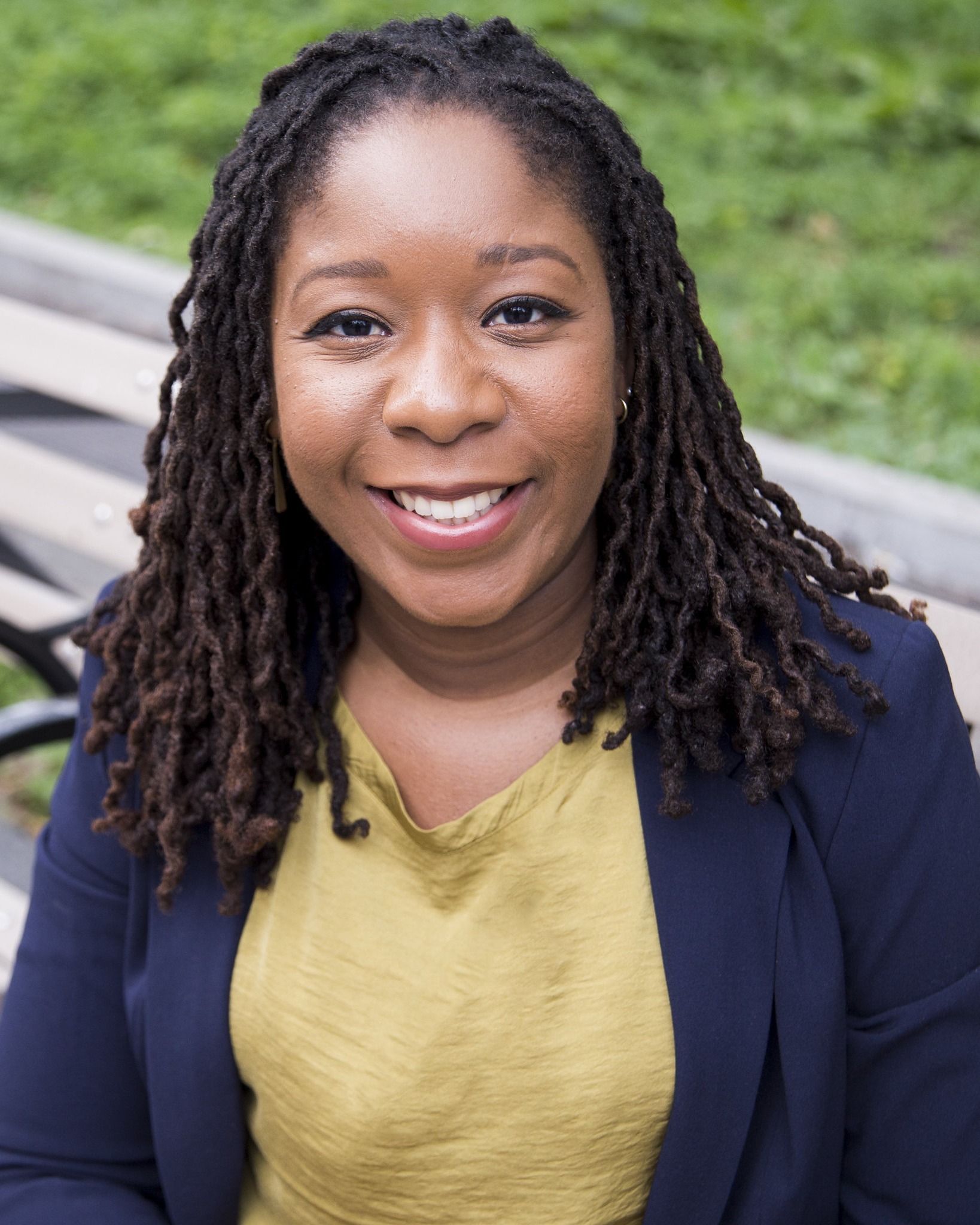 Naila A. Smith is an Assistant Professor of Education, Youth and Social Innovation in the School of Education and Human Development at the University of Virginia (UVA). At UVA, she is a faculty affiliate with Youth-Nex: The UVA Center to Promote Effective Youth Development and the Center for Race and Public Education in the South. Dr. Smith earned her Ph.D. in Applied Developmental Psychology from Fordham University, Bronx, NY in 2016. Her research applies anti-racist and strengths-based perspectives to examine the role of sociocultural resources (i.e., social relationships with parents, teachers, and peers), assets (e.g., ethnic-racial identity), and risks (e.g., discrimination) in the development of marginalized groups, primarily immigrant, Black, and Latinx, from childhood to emerging adulthood (ages 18-25). Dr. Smith is strongly committed to the goals of equity, justice, and inclusion in developmental science and academia at large. She is a native of Jamaica, a foodie, and lover of karaoke.
Naila A. Smith is an Assistant Professor of Education, Youth and Social Innovation in the School of Education and Human Development at the University of Virginia (UVA). At UVA, she is a faculty affiliate with Youth-Nex: The UVA Center to Promote Effective Youth Development and the Center for Race and Public Education in the South. Dr. Smith earned her Ph.D. in Applied Developmental Psychology from Fordham University, Bronx, NY in 2016. Her research applies anti-racist and strengths-based perspectives to examine the role of sociocultural resources (i.e., social relationships with parents, teachers, and peers), assets (e.g., ethnic-racial identity), and risks (e.g., discrimination) in the development of marginalized groups, primarily immigrant, Black, and Latinx, from childhood to emerging adulthood (ages 18-25). Dr. Smith is strongly committed to the goals of equity, justice, and inclusion in developmental science and academia at large. She is a native of Jamaica, a foodie, and lover of karaoke.
Key Research Interests:
Diversity, Equity, and Social Justice, Race, Ethnicity, Culture, Context, Social Relationships
Gustavo Carlo
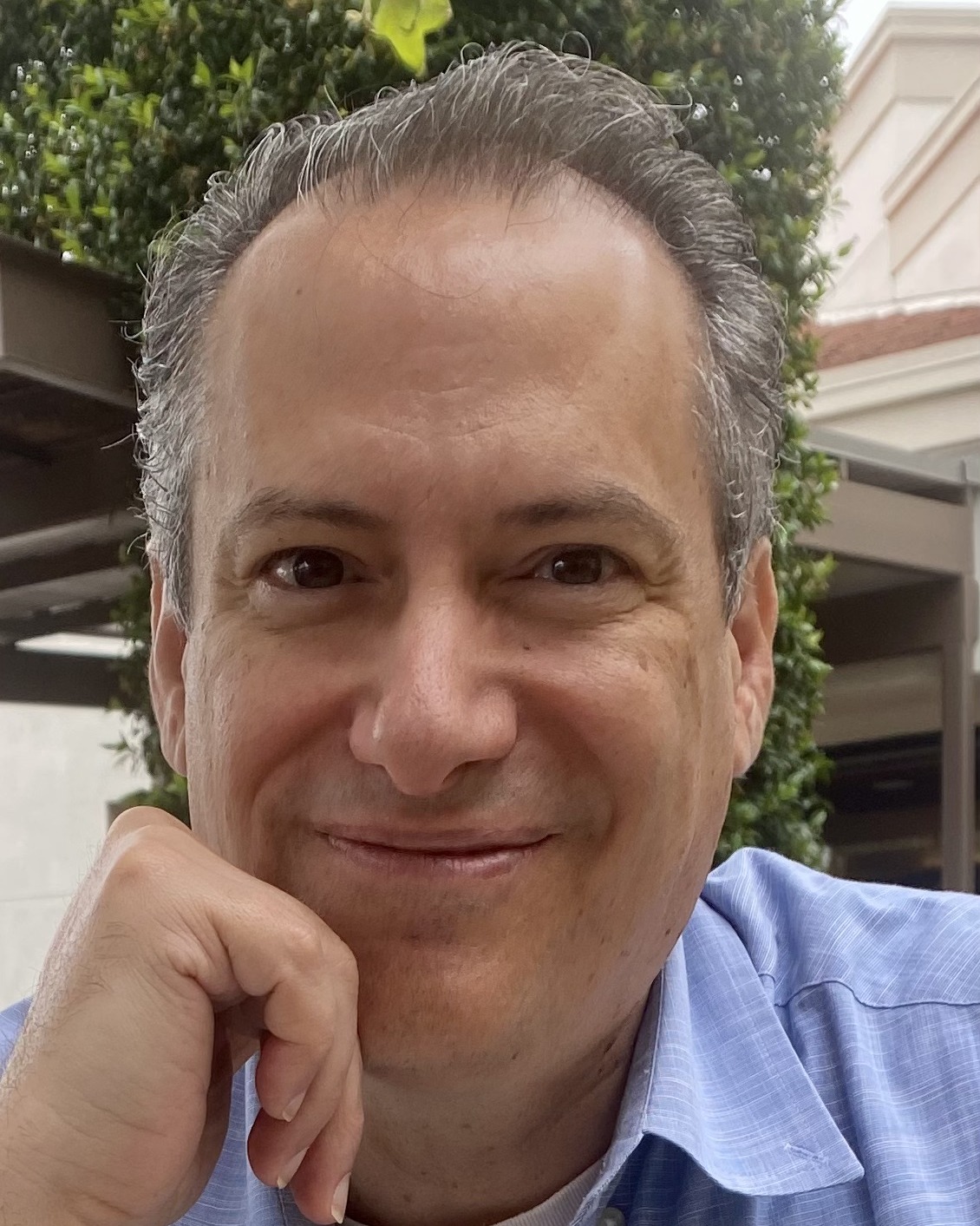 Dr. Gustavo Carlo is Professor in the School of Education at the University of California, Irvine. His primary research interest focuses on understanding positive social development and health in culturally-diverse children and adolescents. Many of his projects focus on ethnic/racial groups across the world and in U.S. Latino/a youth and families. He has published over 300 books, chapters, and research papers. He has received funding from various agencies (including NSF, NIH) and has received several awards for his research and mentorship. He currently serves as a member of the SRCD Governing Council, Associate Editor of Developmental Psychology, and co-edited the recent APA Handbook of Adolescent and Young Adult Development.
Dr. Gustavo Carlo is Professor in the School of Education at the University of California, Irvine. His primary research interest focuses on understanding positive social development and health in culturally-diverse children and adolescents. Many of his projects focus on ethnic/racial groups across the world and in U.S. Latino/a youth and families. He has published over 300 books, chapters, and research papers. He has received funding from various agencies (including NSF, NIH) and has received several awards for his research and mentorship. He currently serves as a member of the SRCD Governing Council, Associate Editor of Developmental Psychology, and co-edited the recent APA Handbook of Adolescent and Young Adult Development.
Key Research Interests:
Diversity, Equity, and Social Justice, Family Context and Processes, Moral Development, Parenting and Parent-Child Relationships, Positive Youth Development, Race, Ethnicity, Culture, Context, Social, Emotional, Personality
Barbara Rogoff
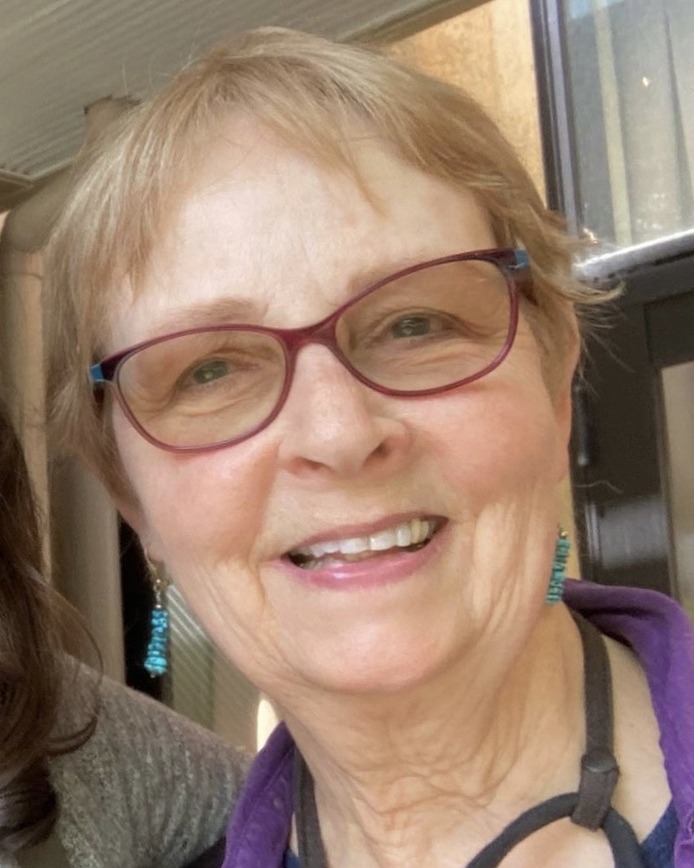 Barbara Rogoff is UCSC Foundation Distinguished Professor of Psychology at UC Santa Cruz. She investigates cultural aspects of children’s learning and how communities arrange for learning, finding especially sophisticated collaboration and attention among children from Indigenous communities of the Americas. She received awards for Distinguished Lifetime Contributions (SRCD), Distinguished Contributions to Developmental Science (Piaget Society), and Outstanding Research (UCSC). She is an elected member of the American Academy of Arts and Sciences and the National Academy of Education, and a Fellow of the AAA, APS, APA, and AERA. She has held the UC Presidential Chair and Fellowships of the Center for Advanced Study in the Behavioral Sciences, Kellogg Foundation, and the Exploratorium, and served as Editor of Human Development. She is author of Learning Together: Children and Adults in a School Community; The Cultural Nature of Human Development; and Developing Destinies: A Mayan Midwife and Town.
Barbara Rogoff is UCSC Foundation Distinguished Professor of Psychology at UC Santa Cruz. She investigates cultural aspects of children’s learning and how communities arrange for learning, finding especially sophisticated collaboration and attention among children from Indigenous communities of the Americas. She received awards for Distinguished Lifetime Contributions (SRCD), Distinguished Contributions to Developmental Science (Piaget Society), and Outstanding Research (UCSC). She is an elected member of the American Academy of Arts and Sciences and the National Academy of Education, and a Fellow of the AAA, APS, APA, and AERA. She has held the UC Presidential Chair and Fellowships of the Center for Advanced Study in the Behavioral Sciences, Kellogg Foundation, and the Exploratorium, and served as Editor of Human Development. She is author of Learning Together: Children and Adults in a School Community; The Cultural Nature of Human Development; and Developing Destinies: A Mayan Midwife and Town.
Key Research Interests:
Attention, Learning, Memory, Cognitive Processes, Diversity, Equity, and Social Justice, Family Context and Processes, Language, Communication, Methods, History, Theory, Race, Ethnicity, Culture, Context, Social Relationships
Doré LaForett (Sold Out)
 Doré R. LaForett, Ph.D. is a Research Scholar at Child Trends. She received her B.A. from the University of Denver (Psychology, Spanish), her M.A. from the University of South Carolina (Clinical-Community Psychology), her Ph.D. from Temple University (Clinical Psychology), and completed two post-docs at the University of North Carolina at Chapel Hill (Early Education Sciences, Developmental Disabilities). Dr. LaForett is an early childhood mixed methods researcher who specializes in child development and the educational experiences of culturally and linguistically diverse young children and families. Her lines of work include dual language learners and dual language programming, child and family mental health, and family engagement. Her research has been funded by federal and state agencies, as well as private foundations. She is the Chair of the SRCD Latinx Caucus, and is an Associate Editor for the Journal of Early Intervention. Dr. LaForett is a licensed psychologist in North Carolina.
Doré R. LaForett, Ph.D. is a Research Scholar at Child Trends. She received her B.A. from the University of Denver (Psychology, Spanish), her M.A. from the University of South Carolina (Clinical-Community Psychology), her Ph.D. from Temple University (Clinical Psychology), and completed two post-docs at the University of North Carolina at Chapel Hill (Early Education Sciences, Developmental Disabilities). Dr. LaForett is an early childhood mixed methods researcher who specializes in child development and the educational experiences of culturally and linguistically diverse young children and families. Her lines of work include dual language learners and dual language programming, child and family mental health, and family engagement. Her research has been funded by federal and state agencies, as well as private foundations. She is the Chair of the SRCD Latinx Caucus, and is an Associate Editor for the Journal of Early Intervention. Dr. LaForett is a licensed psychologist in North Carolina.
Key Research Interests:
Diversity, Equity, and Social Justice, Education, Schooling, Family Context and Processes, Language, Communication, Parenting and Parent-Child Relationships, Race, Ethnicity, Culture, Context, School Readiness, Childcare, Social, Emotional, Personality
Rebekah Levine Coley (Sold Out)
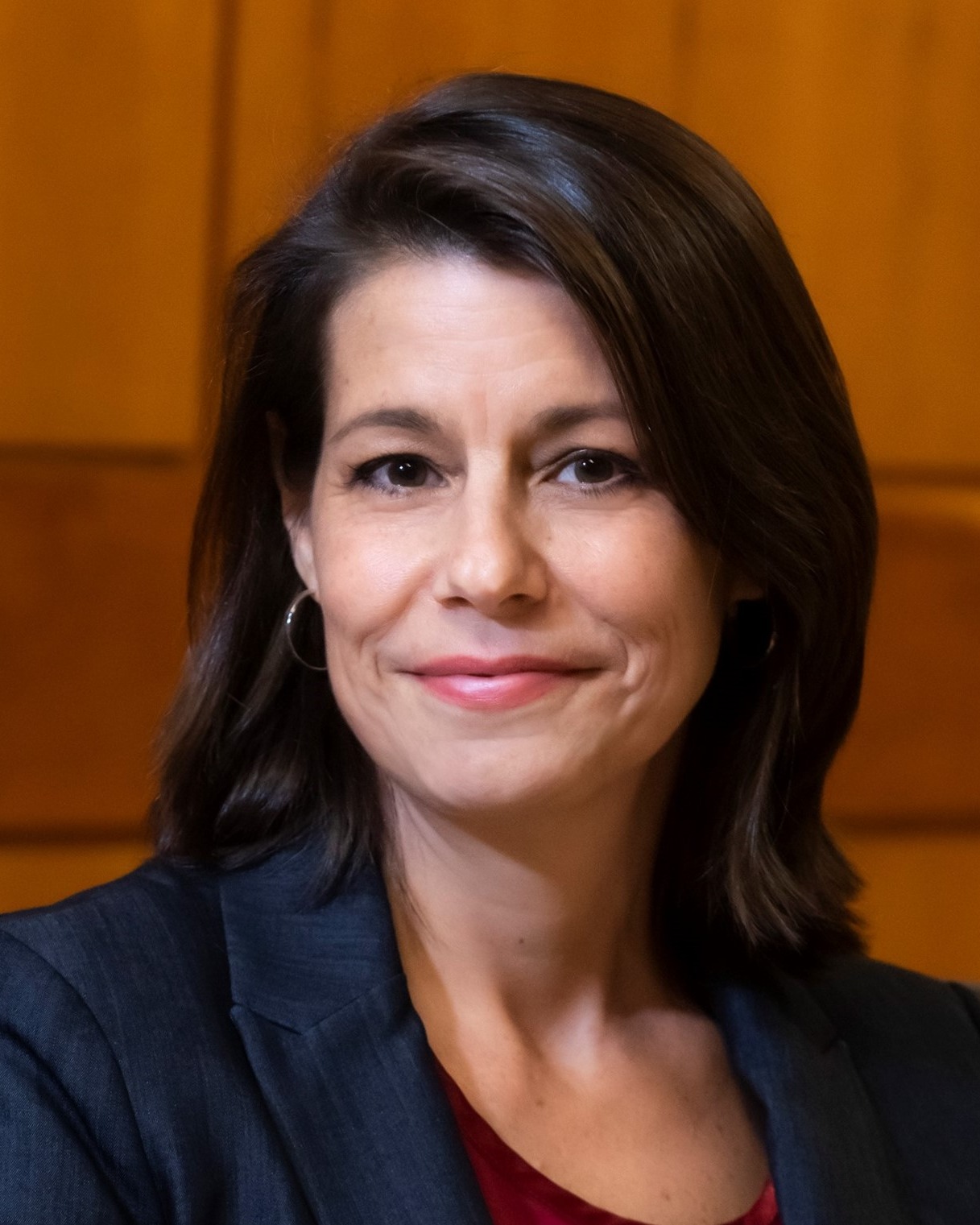 Rebekah Levine Coley, Ph.D. is Professor of Psychology and Director of the Institute of Early Childhood Policy at Boston College. Professor Coley’s expertise lies in assessing and counteracting economic, social, and racial inequities in mental and behavioral health and educational and economic attainment. Her research employs quantitative, qualitative, and evaluation methodologies to assess and inform social and educational policies and practices at the federal, state, and local level which seek to disrupt the transmission of inequities to children, families, and communities. Professor Coley was the founding Editor of SRCD’s Child Evidence Briefs which translate developmental science to federal and state policy makers, and has held leadership positions in SRCD, SRA, and the University-based Child and Family Policy Consortium. Her research excellence has been recognized through receipt of a Fulbright Senior Scholar Award, an SRA Social Policy Award, and the inaugural APA Mavis Hetherington Award in Applied Developmental Science.
Rebekah Levine Coley, Ph.D. is Professor of Psychology and Director of the Institute of Early Childhood Policy at Boston College. Professor Coley’s expertise lies in assessing and counteracting economic, social, and racial inequities in mental and behavioral health and educational and economic attainment. Her research employs quantitative, qualitative, and evaluation methodologies to assess and inform social and educational policies and practices at the federal, state, and local level which seek to disrupt the transmission of inequities to children, families, and communities. Professor Coley was the founding Editor of SRCD’s Child Evidence Briefs which translate developmental science to federal and state policy makers, and has held leadership positions in SRCD, SRA, and the University-based Child and Family Policy Consortium. Her research excellence has been recognized through receipt of a Fulbright Senior Scholar Award, an SRA Social Policy Award, and the inaugural APA Mavis Hetherington Award in Applied Developmental Science.
Key Research Interests:
Developmental Psychopathology, Family Context and Processes, Race, Ethnicity, Culture, Context, Social Policy, Social, Emotional, Personality
Deborah Rivas-Drake (Sold Out)
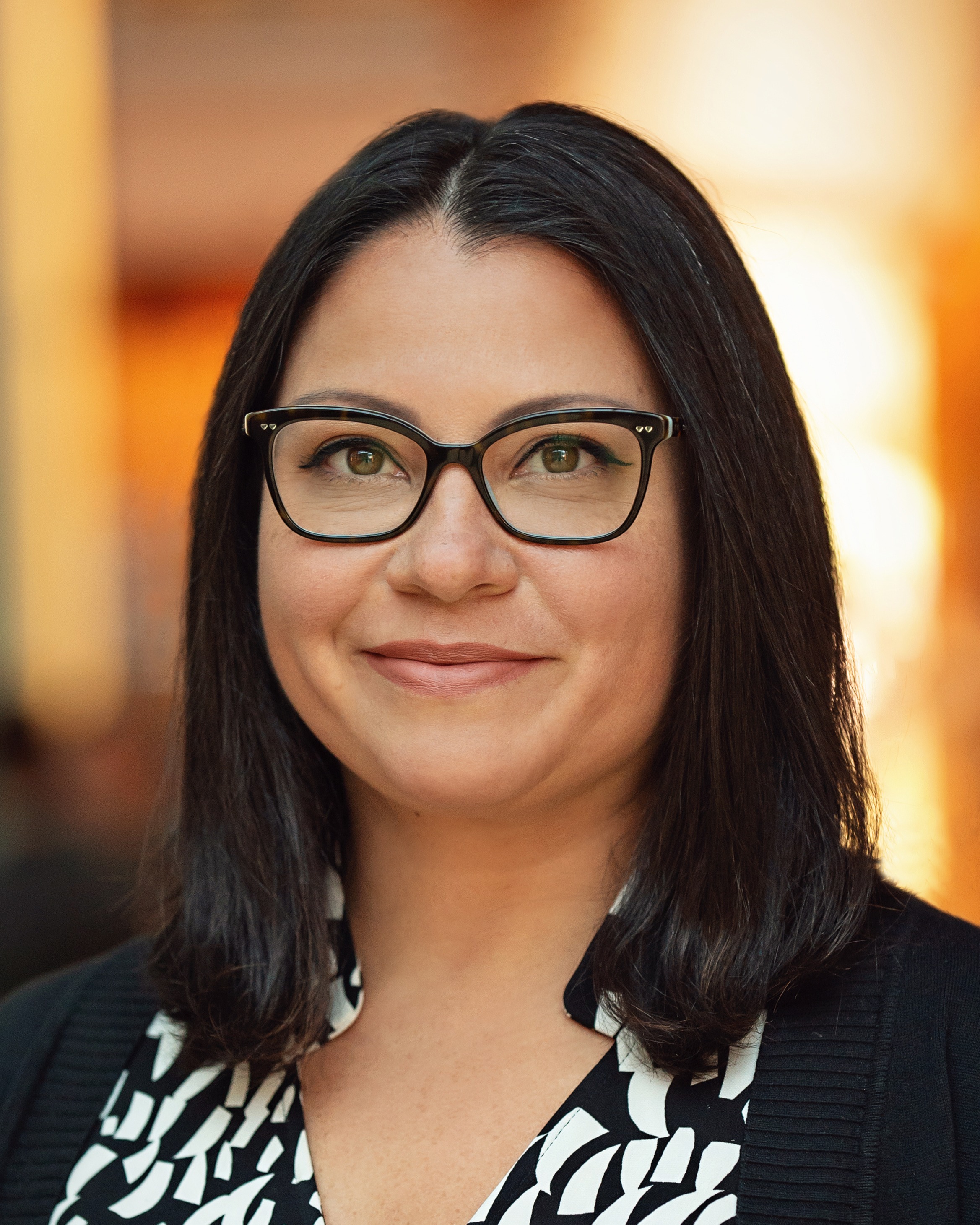 Deborah Rivas-Drake, Ph.D., is the Stephanie J. Rowley Collegiate Professor of Education and Professor of Psychology at the University of Michigan. The overarching goal of her work is to illuminate promising practices that disrupt racism and xenophobia and help keep diverse young people on trajectories of positive contribution to their schools and communities. Together with the Contexts of Academic + Socioemotional Adjustment (CASA) Lab, she examines how school, peer, family, and community settings can support adolescents in navigating issues related to race and ethnicity, and how these experiences inform young people’s academic, socioemotional, and civic development. In addition to her academic publications, she has collaboratively developed products for parents, educators, non-profit organizations, youth program developers, and industry. Dr. Rivas-Drake draws on her experiences as a Latina first-generation college graduate and full professor to enhance opportunity for scholars who are socially marginalized in the academy.
Deborah Rivas-Drake, Ph.D., is the Stephanie J. Rowley Collegiate Professor of Education and Professor of Psychology at the University of Michigan. The overarching goal of her work is to illuminate promising practices that disrupt racism and xenophobia and help keep diverse young people on trajectories of positive contribution to their schools and communities. Together with the Contexts of Academic + Socioemotional Adjustment (CASA) Lab, she examines how school, peer, family, and community settings can support adolescents in navigating issues related to race and ethnicity, and how these experiences inform young people’s academic, socioemotional, and civic development. In addition to her academic publications, she has collaboratively developed products for parents, educators, non-profit organizations, youth program developers, and industry. Dr. Rivas-Drake draws on her experiences as a Latina first-generation college graduate and full professor to enhance opportunity for scholars who are socially marginalized in the academy.
Key Research Interests:
Diversity, Equity, and Social Justice, Education, Schooling, Race, Ethnicity, Culture, Context
Stephen Chen (Almost Sold Out)
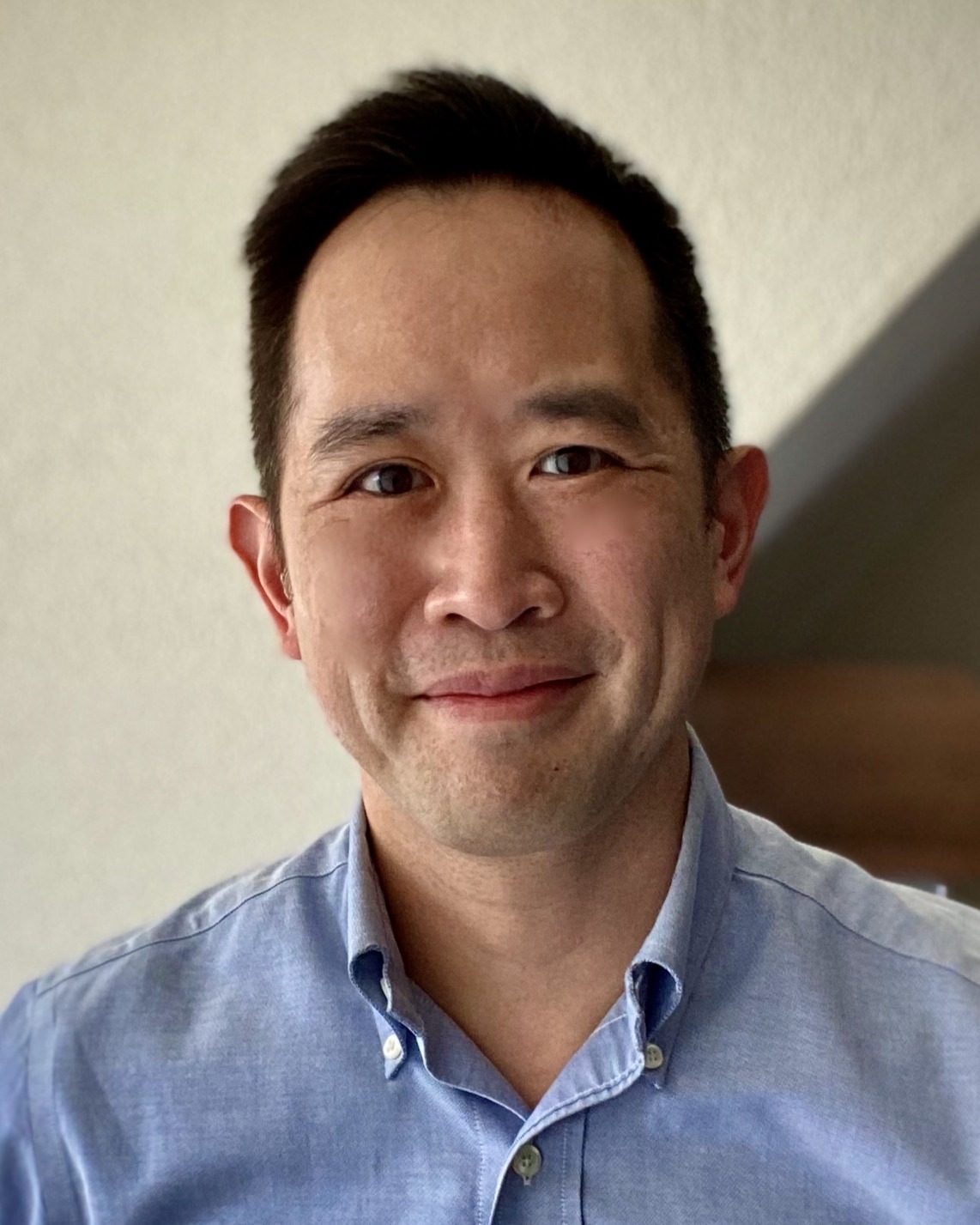 Stephen Chen is an Associate Professor of Psychology at Wellesley College, where he teaches courses in Asian American Psychology, Cultural Psychology, and Culture & Emotion. As director of the Culture, Family, and Development Lab, Chen examines how culture and family processes influence mental health and development across the lifespan. Chen’s current research examines (1) how Asian American families navigate issues of race and social status, and (2) the interplay of multilingualism and emotion in the family context. Chen currently serves on the editorial boards of Child Development, Developmental Psychology, and the Journal of Research in Adolescence. In addition to SRCD, he is active in the Society for Research in Adolescence and the Asian Pacific American Religions Research Initiative.
Stephen Chen is an Associate Professor of Psychology at Wellesley College, where he teaches courses in Asian American Psychology, Cultural Psychology, and Culture & Emotion. As director of the Culture, Family, and Development Lab, Chen examines how culture and family processes influence mental health and development across the lifespan. Chen’s current research examines (1) how Asian American families navigate issues of race and social status, and (2) the interplay of multilingualism and emotion in the family context. Chen currently serves on the editorial boards of Child Development, Developmental Psychology, and the Journal of Research in Adolescence. In addition to SRCD, he is active in the Society for Research in Adolescence and the Asian Pacific American Religions Research Initiative.
Key Research Interests:
Developmental Psychopathology, Family Context and Processes, Parenting and Parent-Child Relationships, Race, Ethnicity, Culture, Context, Social, Emotional, Personality
Shauna Cooper (Sold Out)
 Dr. Shauna M. Cooper is a Professor in the Department of Psychology and Neuroscience at the University of North Carolina at Chapel Hill, where she is also Director of the Strengths, Assets, and Resilience (StAR) Lab. Dr. Cooper is also a Non-Resident fellow at the Urban Institute in Washington, DC. Her research examines racial and cultural contexts of development and well-being. Additionally, her work explores the individual and interactive influences of family relationships as well as school and community factors. Dr. Cooper’s research has been funded by several agencies and organizations, including the National Science Foundation and the National Institutes of Child Health and Human Development, and has been published in a variety of scientific journals. Currently, Dr. Cooper is the Interim Editor-in-Chief for Child Development. Also, she is committed to fostering strategic partnerships and collaborations with organizations and local governments to support children, families, and communities.
Dr. Shauna M. Cooper is a Professor in the Department of Psychology and Neuroscience at the University of North Carolina at Chapel Hill, where she is also Director of the Strengths, Assets, and Resilience (StAR) Lab. Dr. Cooper is also a Non-Resident fellow at the Urban Institute in Washington, DC. Her research examines racial and cultural contexts of development and well-being. Additionally, her work explores the individual and interactive influences of family relationships as well as school and community factors. Dr. Cooper’s research has been funded by several agencies and organizations, including the National Science Foundation and the National Institutes of Child Health and Human Development, and has been published in a variety of scientific journals. Currently, Dr. Cooper is the Interim Editor-in-Chief for Child Development. Also, she is committed to fostering strategic partnerships and collaborations with organizations and local governments to support children, families, and communities.
Key Research Interests:
Diversity, Equity, and Social Justice, Family Context and Processes, Parenting and Parent-Child Relationships, Positive Youth Development, Race, Ethnicity, Culture, Context
Kathryn Modecki (Almost Sold Out)
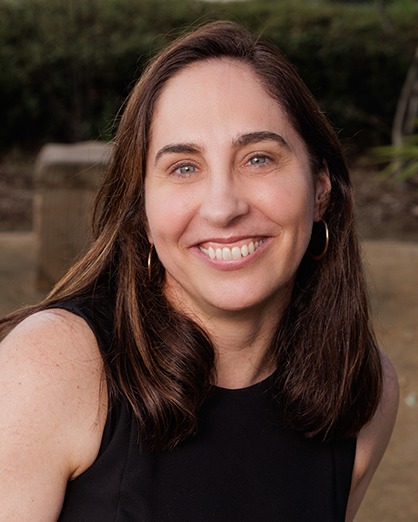 Dr. Kathryn Modecki is a Professor in the School of Psychological Science, University of Western Australia and Distinguished Professorial Research Fellow at The Kids Institute, the largest child health research institute in the Western Hemisphere. Dr. Modecki trained at the University of Virginia, University of New Hampshire, and Arizona State University’s REACH Center and has been supported by the NIMH, Centers for Disease Control and Prevention, Jacobs Foundation, eNurture UK Network, and major funders in Australia. Her research maps how adolescents (and parents) navigate stressors, seek support from those around them (including online), and move onto problematic vs. healthier trajectories at key developmental junctures. Dr. Modecki harnesses new technologies to investigate diverse pathways, applying a lens across years, days, and moments via longitudinal surveys, experience sampling, and passive-sensing approaches. She is strongly committed to research mentorship, hosting US, Australian, and international students in the lab, and serve as co-chair of SRCD’s International Affairs Committee.
Dr. Kathryn Modecki is a Professor in the School of Psychological Science, University of Western Australia and Distinguished Professorial Research Fellow at The Kids Institute, the largest child health research institute in the Western Hemisphere. Dr. Modecki trained at the University of Virginia, University of New Hampshire, and Arizona State University’s REACH Center and has been supported by the NIMH, Centers for Disease Control and Prevention, Jacobs Foundation, eNurture UK Network, and major funders in Australia. Her research maps how adolescents (and parents) navigate stressors, seek support from those around them (including online), and move onto problematic vs. healthier trajectories at key developmental junctures. Dr. Modecki harnesses new technologies to investigate diverse pathways, applying a lens across years, days, and moments via longitudinal surveys, experience sampling, and passive-sensing approaches. She is strongly committed to research mentorship, hosting US, Australian, and international students in the lab, and serve as co-chair of SRCD’s International Affairs Committee.
Key Research Interests:
Developmental Psychopathology, Technology, Media and Child Development
Saturday Breakfast: May 3, 2025 - 8:30 am - 10:00 am CT
Jennifer Lansford (Almost Sold Out)
 Dr. Jennifer E. Lansford is President-Elect of SRCD and the S. Malcolm Gillis Distinguished Research Professor of Public Policy and Director of the Center for Child and Family Policy at Duke University. She is a developmental psychologist whose research focuses on how culture and family-level factors interact to influence human development. Her research informs understanding of the etiology of health-compromising and risky behaviors from childhood to adulthood. Dr. Lansford leads the Parenting Across Cultures Project, a longitudinal study of children, mothers, and fathers from nine countries (China, Colombia, Italy, Jordan, Kenya, Philippines, Sweden, Thailand, and the United States). She has consulted for UNICEF on the evaluation of parenting programs in several countries and on the development of a set of international standards for parenting programs. She is a Fellow of the American Psychological Association, the Association for Psychological Science, and the International Society for the Study of Behavioral Development.
Dr. Jennifer E. Lansford is President-Elect of SRCD and the S. Malcolm Gillis Distinguished Research Professor of Public Policy and Director of the Center for Child and Family Policy at Duke University. She is a developmental psychologist whose research focuses on how culture and family-level factors interact to influence human development. Her research informs understanding of the etiology of health-compromising and risky behaviors from childhood to adulthood. Dr. Lansford leads the Parenting Across Cultures Project, a longitudinal study of children, mothers, and fathers from nine countries (China, Colombia, Italy, Jordan, Kenya, Philippines, Sweden, Thailand, and the United States). She has consulted for UNICEF on the evaluation of parenting programs in several countries and on the development of a set of international standards for parenting programs. She is a Fellow of the American Psychological Association, the Association for Psychological Science, and the International Society for the Study of Behavioral Development.
Key Research Interests:
Family Context and Processes, Parenting and Parent-Child Relationships, Race, Ethnicity, Culture, Context, Social Policy, Social Relationships
Vaishali Raval
 Dr. Vaishali Raval is professor of psychology and affiliate of global and intercultural studies at Miami University in Oxford, Ohio. She received a Ph.D. in clinical developmental psychology from University of Windsor, and completed a postdoctoral fellowship in cultural psychology and human development at the University of Chicago. Through her research, teaching, and service, she is committed to addressing the historic underrepresentation of global communities in developmental science. Her primary program of research focuses on cultural and contextual foundations of parenting, emotion processes, and how they relate to child and adolescent mental health outcomes. She has worked to promote global developmental science through roles such as the co-chair of SRCD’s international affairs committee, past chair of SRA’s international committee, and chair of the US National Committee for Psychological Science (USNC/IUPsyS), as well as through associate editor roles for Journal of Research on Adolescence and Journal of Cross-Cultural Psychology.
Dr. Vaishali Raval is professor of psychology and affiliate of global and intercultural studies at Miami University in Oxford, Ohio. She received a Ph.D. in clinical developmental psychology from University of Windsor, and completed a postdoctoral fellowship in cultural psychology and human development at the University of Chicago. Through her research, teaching, and service, she is committed to addressing the historic underrepresentation of global communities in developmental science. Her primary program of research focuses on cultural and contextual foundations of parenting, emotion processes, and how they relate to child and adolescent mental health outcomes. She has worked to promote global developmental science through roles such as the co-chair of SRCD’s international affairs committee, past chair of SRA’s international committee, and chair of the US National Committee for Psychological Science (USNC/IUPsyS), as well as through associate editor roles for Journal of Research on Adolescence and Journal of Cross-Cultural Psychology.
Key Research Interests:
Developmental Psychopathology, Diversity, Equity, and Social Justice, Family Context and Processes, Parenting and Parent-Child Relationships, Race, Ethnicity, Culture, Context, Social Relationships, Social, Emotional, Personality
Diana Leyva
 Diana Leyva is an Associate Professor of Psychology and a Research Scientist at the Learning Research and Development Center (LRDC) at University of Pittsburgh, USA. Leyva’s research focuses on how parents support the development of children’s school readiness skills in minority communities including low-income immigrant families in the U.S. and low-income families in Latin America. She received her Ph.D. from Clark University and was a post-doctoral fellow at Harvard University and project director of Un Buen Comienzo (A Good Start), a teacher professional program in Chile. She has published in Child Development, Developmental Psychology, and Early Childhood Research Quarterly, among other top scientific journals.
Diana Leyva is an Associate Professor of Psychology and a Research Scientist at the Learning Research and Development Center (LRDC) at University of Pittsburgh, USA. Leyva’s research focuses on how parents support the development of children’s school readiness skills in minority communities including low-income immigrant families in the U.S. and low-income families in Latin America. She received her Ph.D. from Clark University and was a post-doctoral fellow at Harvard University and project director of Un Buen Comienzo (A Good Start), a teacher professional program in Chile. She has published in Child Development, Developmental Psychology, and Early Childhood Research Quarterly, among other top scientific journals.
Key Research Interests:
Diversity, Equity, and Social Justice, Education, Schooling, Family Context and Processes, Language, Communication, Out-of-School Time, Parenting and Parent-Child Relationships, Prevention and Interventions, Race, Ethnicity, Culture, Context, School Readiness, Childcare
Perla B. Gámez
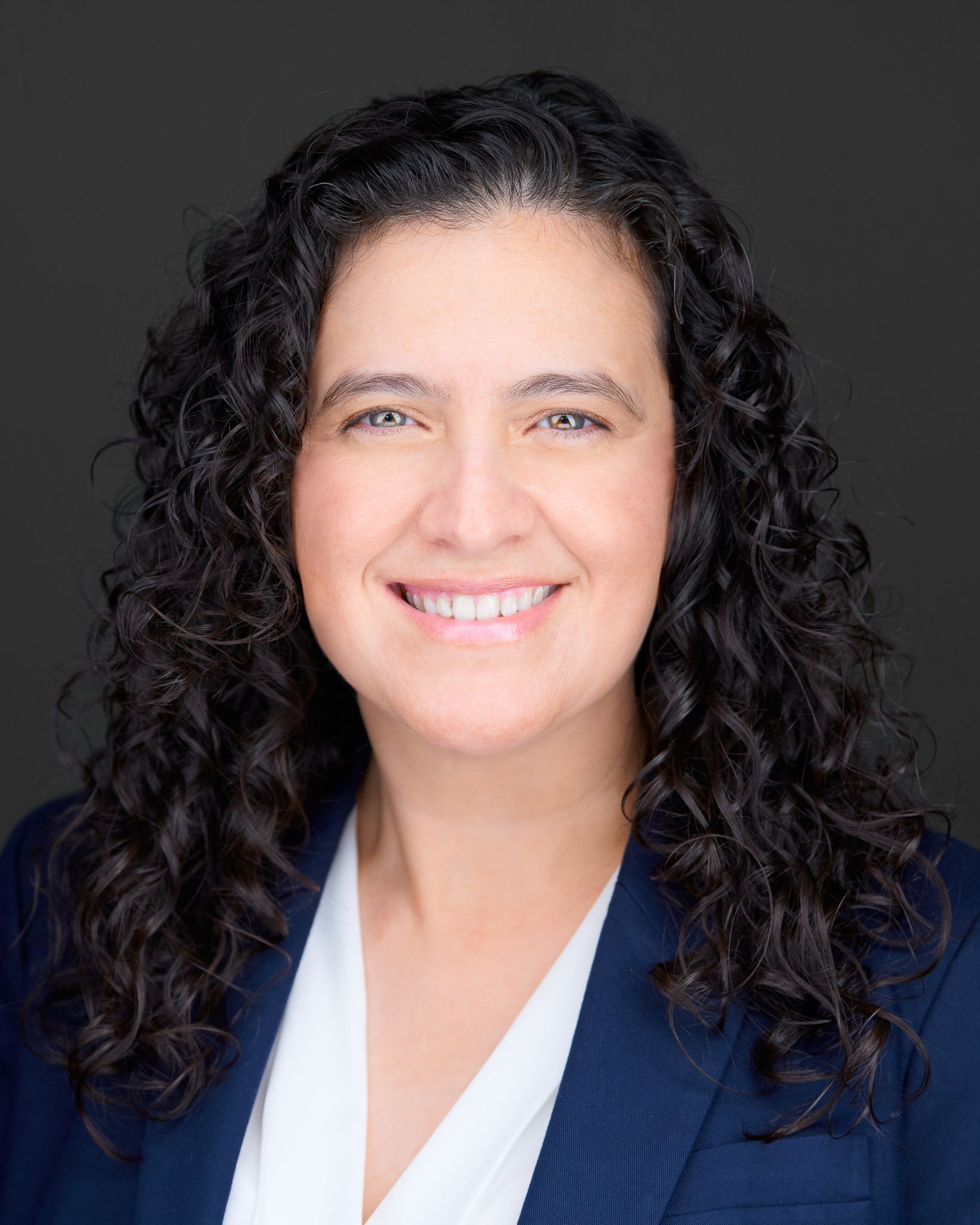 Dr. Perla B. Gámez is associate professor of psychology at Loyola University Chicago (LUC) and secretary for the SRCD Latinx Caucus. Currently, she is a mentor for the SRCD Horowitz Early Career Scholar Program. Dr. Gámez received a Ph.D. from the University of Chicago and was a post-doctoral fellow at the Harvard Graduate School of Education. She leads a program of research focused on the language and literacy development of Spanish-speaking Latino children. Her research examines how variations in the features of language that Latino children are exposed to impact their bilingual language and literacy skills. Her research has been funded by the National Institutes of Health, William T. Grant Foundation, and the National Science Foundation as well as a National Academy of Education/Spencer Postdoctoral Fellowship, and an Institute for Education Sciences Dissertation Year Fellowship. She has been honored by the Master Researcher and Teaching Excellence Awards at LUC.
Dr. Perla B. Gámez is associate professor of psychology at Loyola University Chicago (LUC) and secretary for the SRCD Latinx Caucus. Currently, she is a mentor for the SRCD Horowitz Early Career Scholar Program. Dr. Gámez received a Ph.D. from the University of Chicago and was a post-doctoral fellow at the Harvard Graduate School of Education. She leads a program of research focused on the language and literacy development of Spanish-speaking Latino children. Her research examines how variations in the features of language that Latino children are exposed to impact their bilingual language and literacy skills. Her research has been funded by the National Institutes of Health, William T. Grant Foundation, and the National Science Foundation as well as a National Academy of Education/Spencer Postdoctoral Fellowship, and an Institute for Education Sciences Dissertation Year Fellowship. She has been honored by the Master Researcher and Teaching Excellence Awards at LUC.
Key Research Interests:
Education, Schooling, Family Context and Processes, Language, Communication, Parenting and Parent-Child Relationships
Ashley Groh (Sold Out)
 Dr. Groh's research applies a biopsychosocial perspective to investigating the developmental origins and legacy of children’s early relationships with parents for socioemotional development across the lifespan. Dr. Groh pursues three primary lines of research, including examining the: (1) intergenerational transmission of parent-child attachment relationships, (2) developmental significance of early caregiving experiences for social and emotional development, and (3) construction of representations of attachment in infancy and adulthood. Dr. Groh's research interests lie at the intersection of social, emotional, and biological processes in development. As such, her research is multi-method in nature, including interview and self-report measures of representations of early experiences, observational assessments of family processes, and biological measures of autonomic physiological activity (e.g., electrodermal reactivity, heart rate) and brain activity (e.g., EEG/ERP). In addition, Dr. Groh uses a multi-faceted approach to addressing developmental research questions, leveraging meta-analytic, longitudinal, and experimental methods.
Dr. Groh's research applies a biopsychosocial perspective to investigating the developmental origins and legacy of children’s early relationships with parents for socioemotional development across the lifespan. Dr. Groh pursues three primary lines of research, including examining the: (1) intergenerational transmission of parent-child attachment relationships, (2) developmental significance of early caregiving experiences for social and emotional development, and (3) construction of representations of attachment in infancy and adulthood. Dr. Groh's research interests lie at the intersection of social, emotional, and biological processes in development. As such, her research is multi-method in nature, including interview and self-report measures of representations of early experiences, observational assessments of family processes, and biological measures of autonomic physiological activity (e.g., electrodermal reactivity, heart rate) and brain activity (e.g., EEG/ERP). In addition, Dr. Groh uses a multi-faceted approach to addressing developmental research questions, leveraging meta-analytic, longitudinal, and experimental methods.
Key Research Interests:
Biological Processes: Neuroscience and Genetics, Biological Processes: Psychophysiology, Family Context and Processes, Parenting and Parent-Child Relationships, Social Relationships, Social, Emotional, Personality
Stephen Russell
 Stephen Russell (he/him) is Priscilla Pond Flawn Regents Professor in Child Development and Amy Johnson McLaughlin Director of the School of Human Ecology at the University of Texas at Austin. He is an expert in adolescent and young adult health, with a focus on sexual orientation and gender identity. His 2016 book, Sexual Orientation, Gender Identity and Schooling: The Nexus of Research, Practice and Policy, won awards from the American Psychological Association and the Society for Research on Adolescence. He has served on the governing boards of: the Society for Research in Child Development; the National Council on Family Relations (and is an elected fellow); the Council on Contemporary Families; SIECUS: Sex Ed for Social Change; the National Scientific Council on Adolescence; the National Academies of Sciences, Engineering and Medicine Board on Children, Youth and Families; and the Society for Research on Adolescence (he served as President 2012-2014).
Stephen Russell (he/him) is Priscilla Pond Flawn Regents Professor in Child Development and Amy Johnson McLaughlin Director of the School of Human Ecology at the University of Texas at Austin. He is an expert in adolescent and young adult health, with a focus on sexual orientation and gender identity. His 2016 book, Sexual Orientation, Gender Identity and Schooling: The Nexus of Research, Practice and Policy, won awards from the American Psychological Association and the Society for Research on Adolescence. He has served on the governing boards of: the Society for Research in Child Development; the National Council on Family Relations (and is an elected fellow); the Council on Contemporary Families; SIECUS: Sex Ed for Social Change; the National Scientific Council on Adolescence; the National Academies of Sciences, Engineering and Medicine Board on Children, Youth and Families; and the Society for Research on Adolescence (he served as President 2012-2014).
Key Research Interests:
Diversity, Equity, and Social Justice, Education, Schooling, Family Context and Processes, Parenting and Parent-Child Relationships, Race, Ethnicity, Culture, Context
Joanna Williams
 Dr. Joanna Williams is Senior Director of Research at Search Institute, a non-profit organization that promotes positive youth development and advances equity through applied research and collaborative partnerships with youth-serving organizations. Her education includes an M.S.Ed. in human development from University of Pennsylvania, a Ph.D. in developmental psychology from Temple University, and the generous wisdom of mentors, peers, and young people. Dr. Williams was a tenured faculty member at University of Virginia and Rutgers University, where she cultivated her research skills with a focus on racial equity, identity, and positive youth development. She was a recipient of a William T. Grant Scholars Award and is past-Chair of the SRCD Black Caucus. Dr. Williams is committed to co-producing actionable research for practitioners, policymakers, families, and communities. She is a member of the National Scientific Council on Adolescence and the National Academies of Science, Engineering and Medicine's Board on Children, Youth, and Families.
Dr. Joanna Williams is Senior Director of Research at Search Institute, a non-profit organization that promotes positive youth development and advances equity through applied research and collaborative partnerships with youth-serving organizations. Her education includes an M.S.Ed. in human development from University of Pennsylvania, a Ph.D. in developmental psychology from Temple University, and the generous wisdom of mentors, peers, and young people. Dr. Williams was a tenured faculty member at University of Virginia and Rutgers University, where she cultivated her research skills with a focus on racial equity, identity, and positive youth development. She was a recipient of a William T. Grant Scholars Award and is past-Chair of the SRCD Black Caucus. Dr. Williams is committed to co-producing actionable research for practitioners, policymakers, families, and communities. She is a member of the National Scientific Council on Adolescence and the National Academies of Science, Engineering and Medicine's Board on Children, Youth, and Families.
Key Research Interests:
Diversity, Equity, and Social Justice, Positive Youth Development, Race, Ethnicity, Culture, Context, Social Relationships, Social, Emotional, Personality